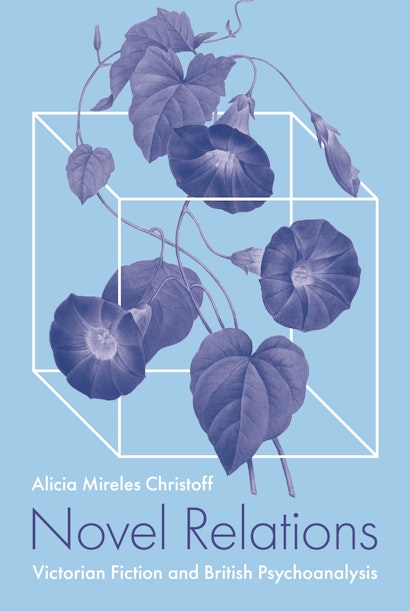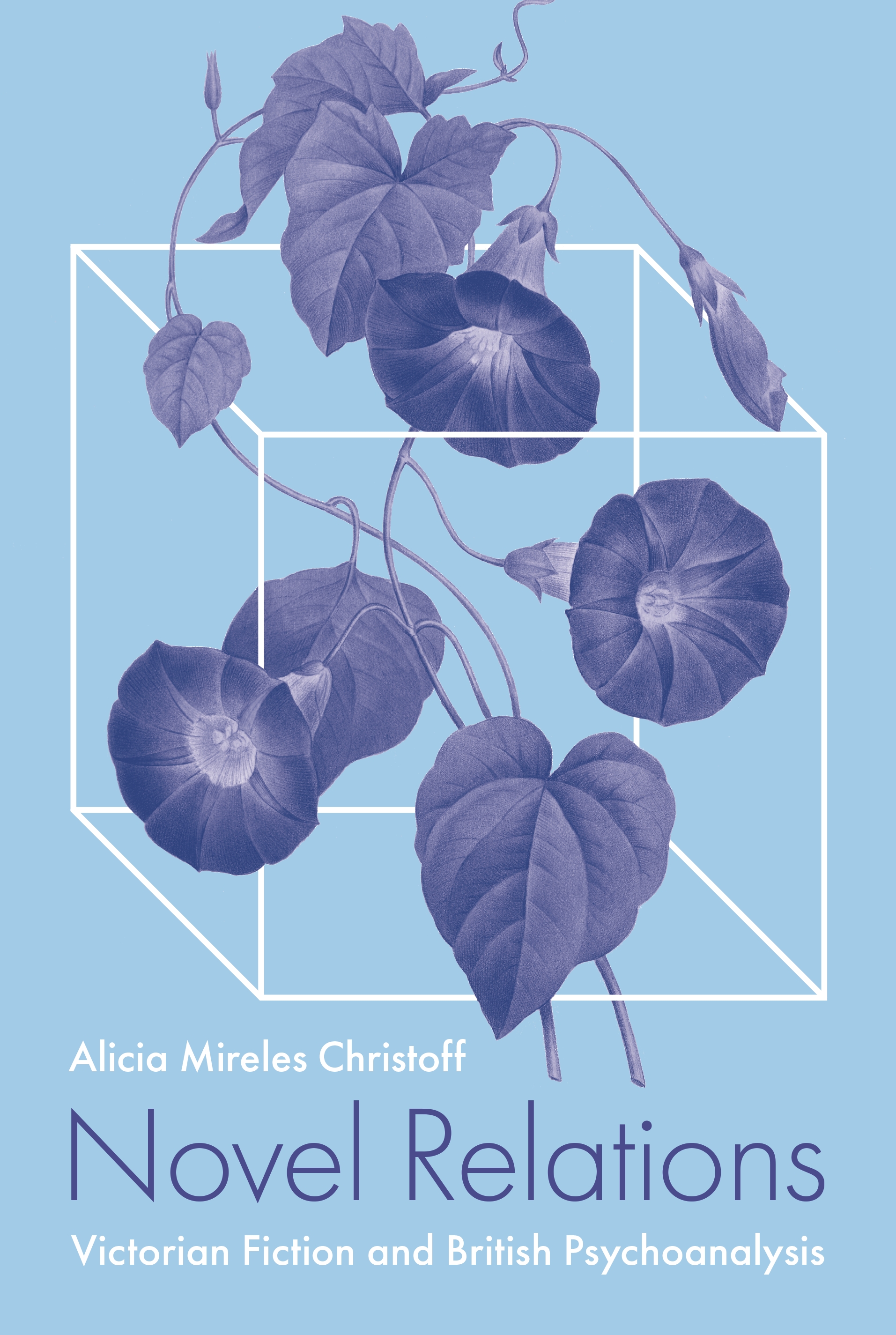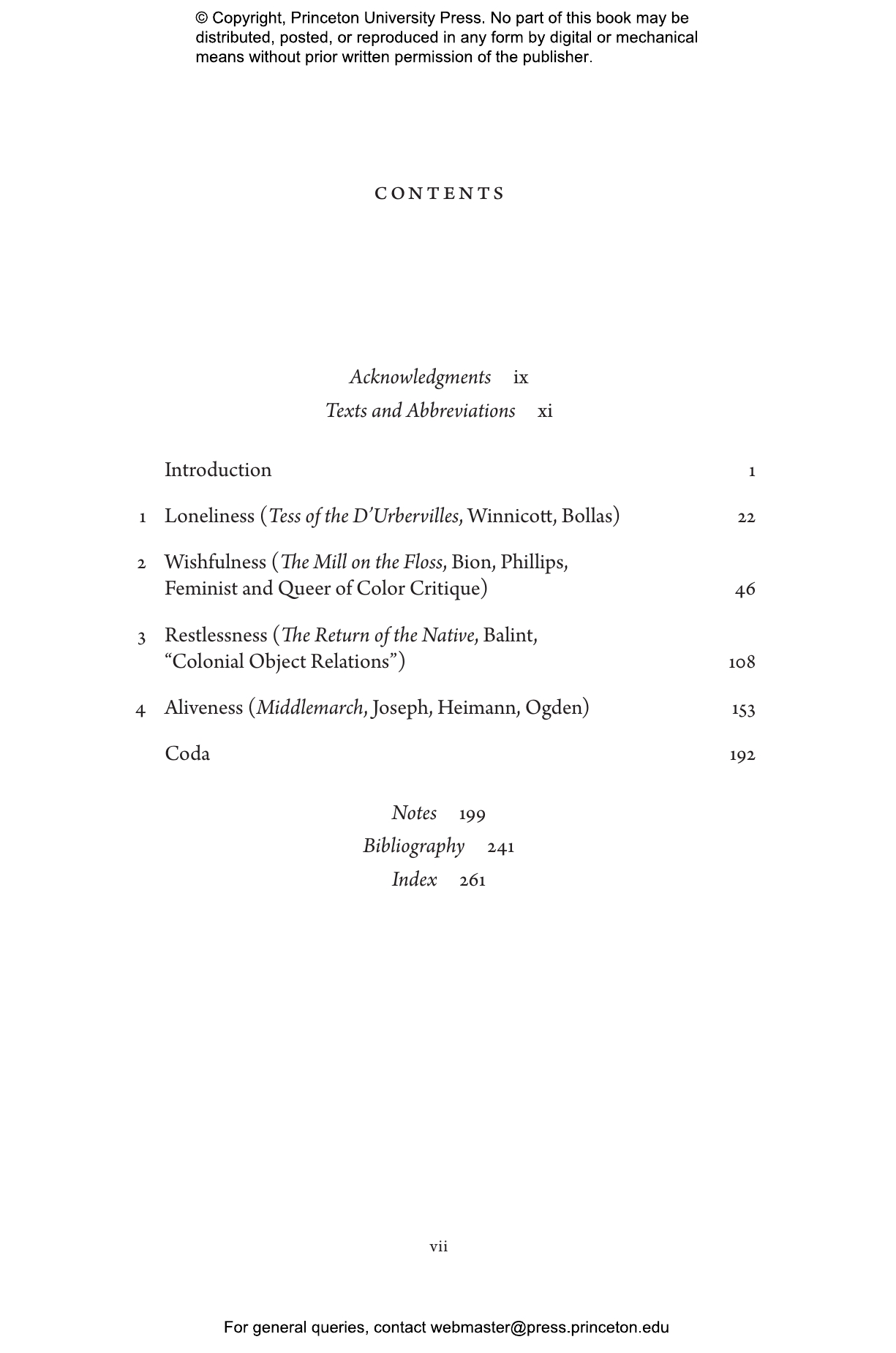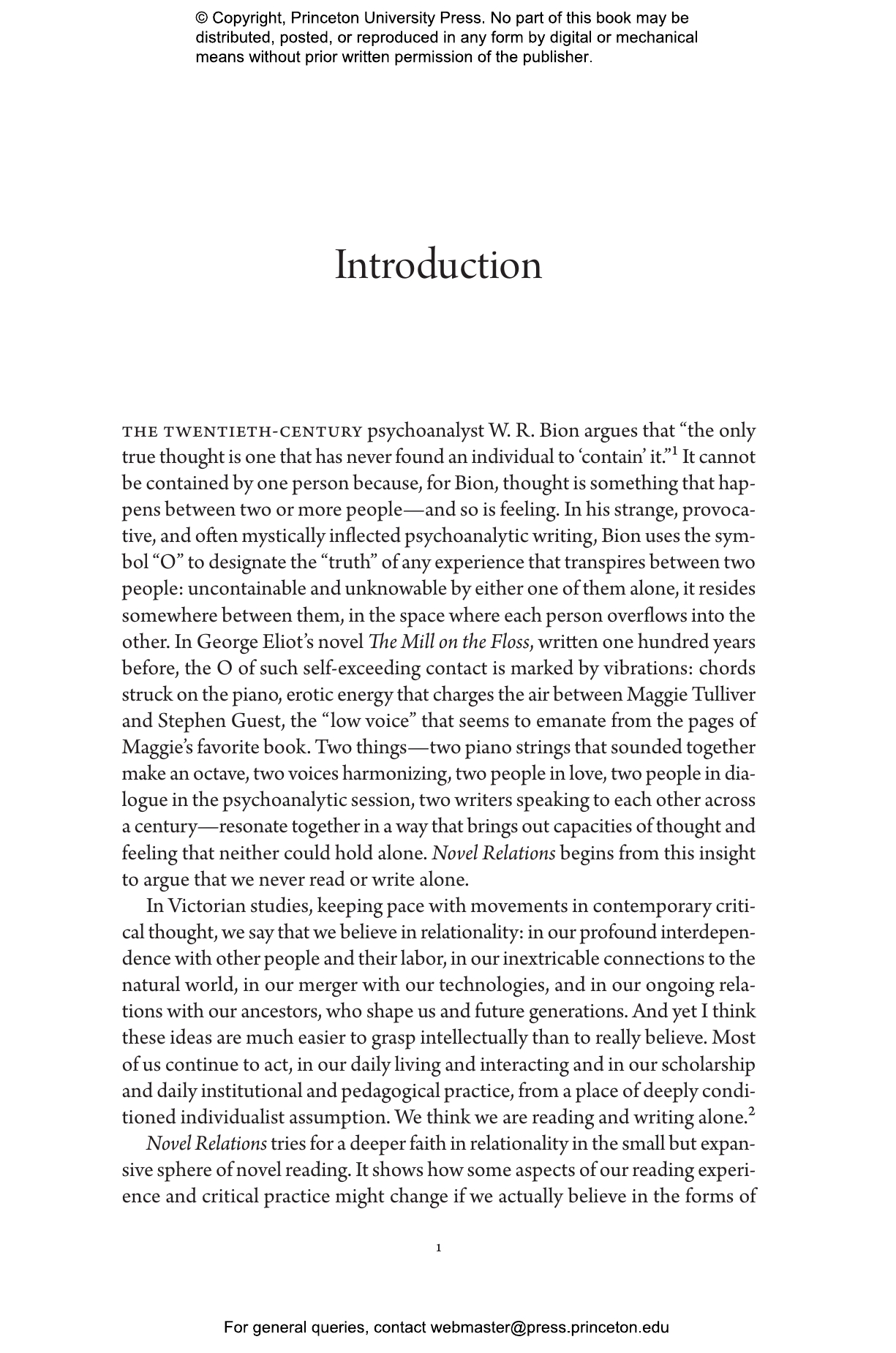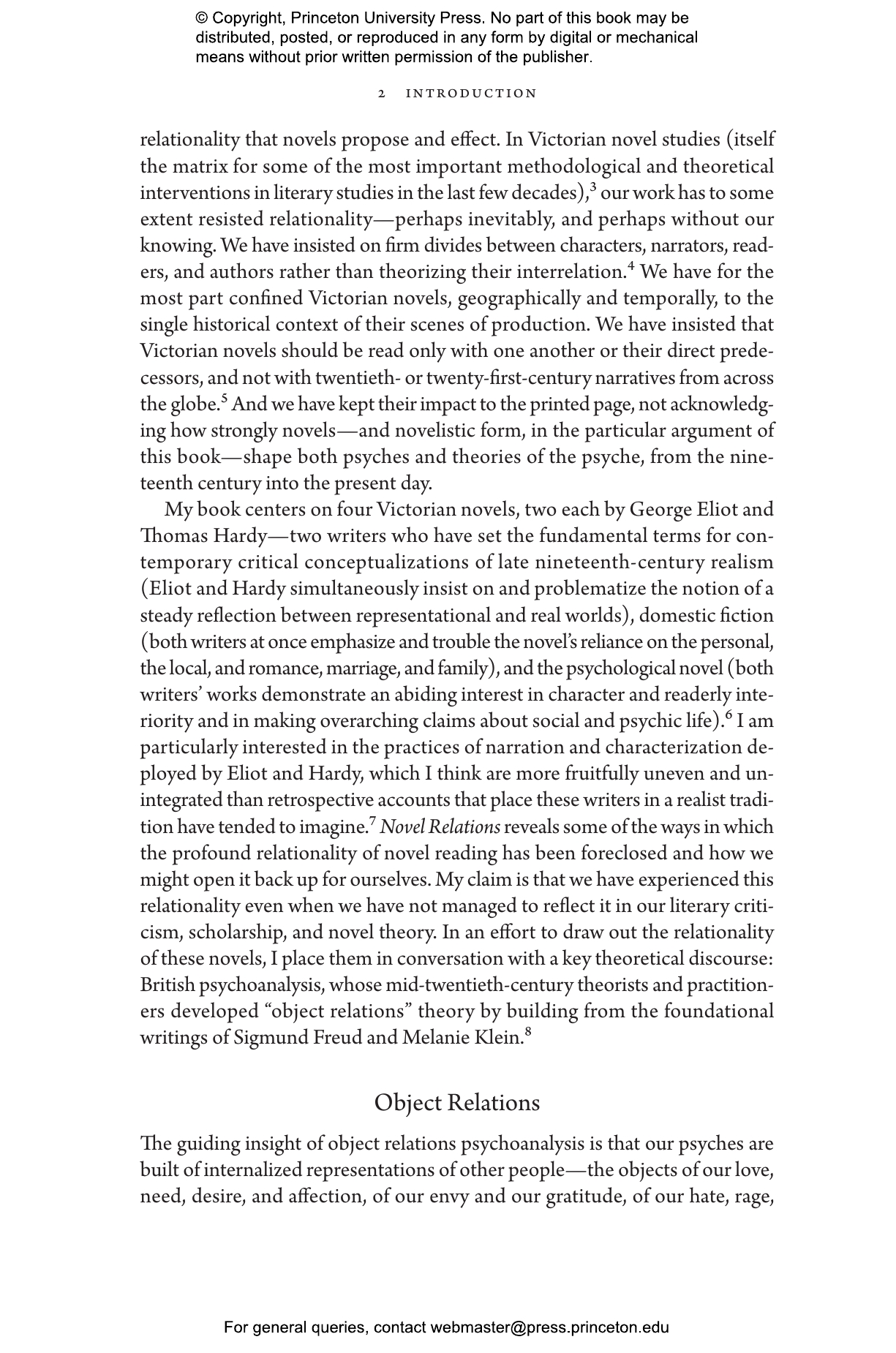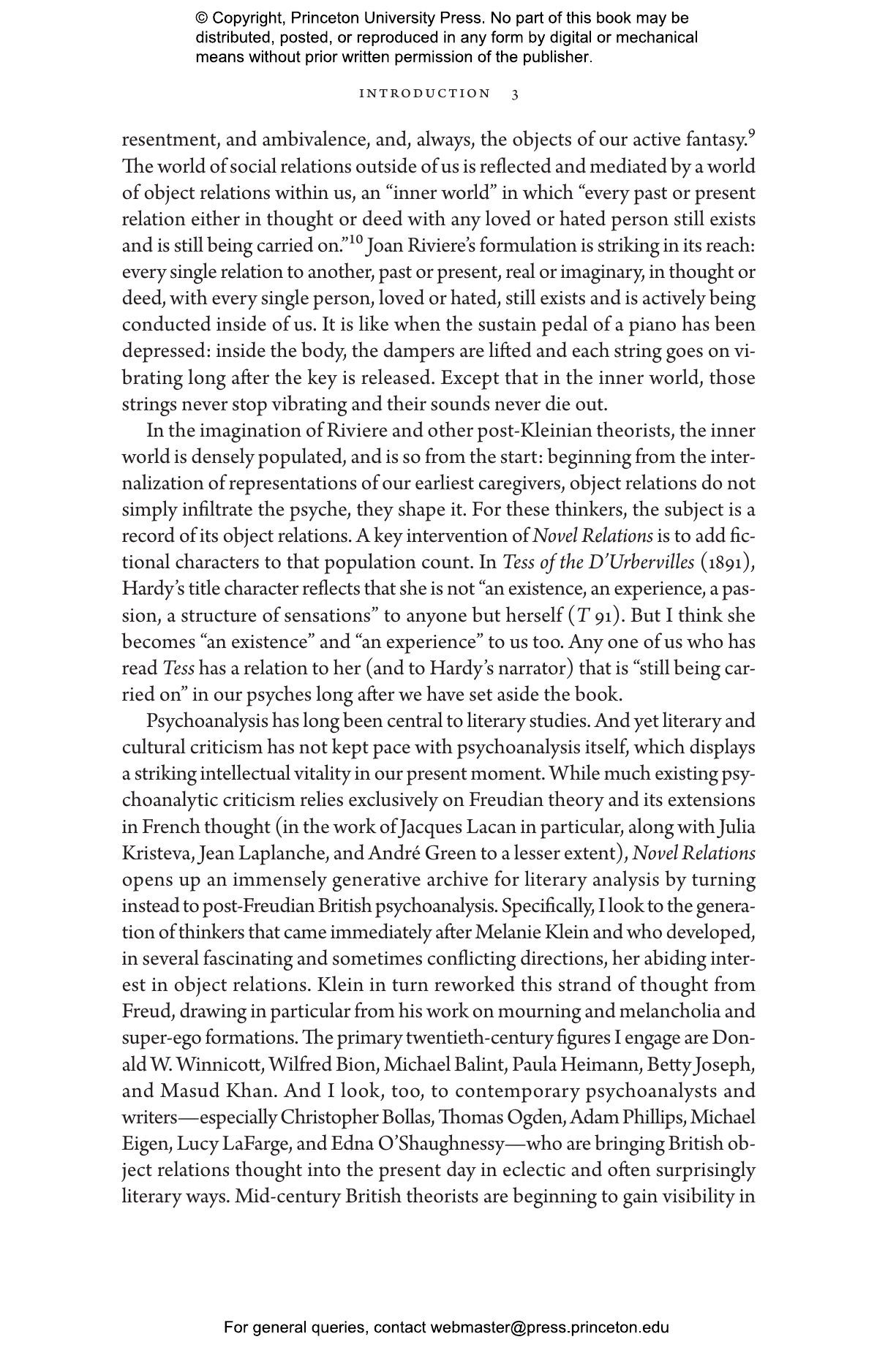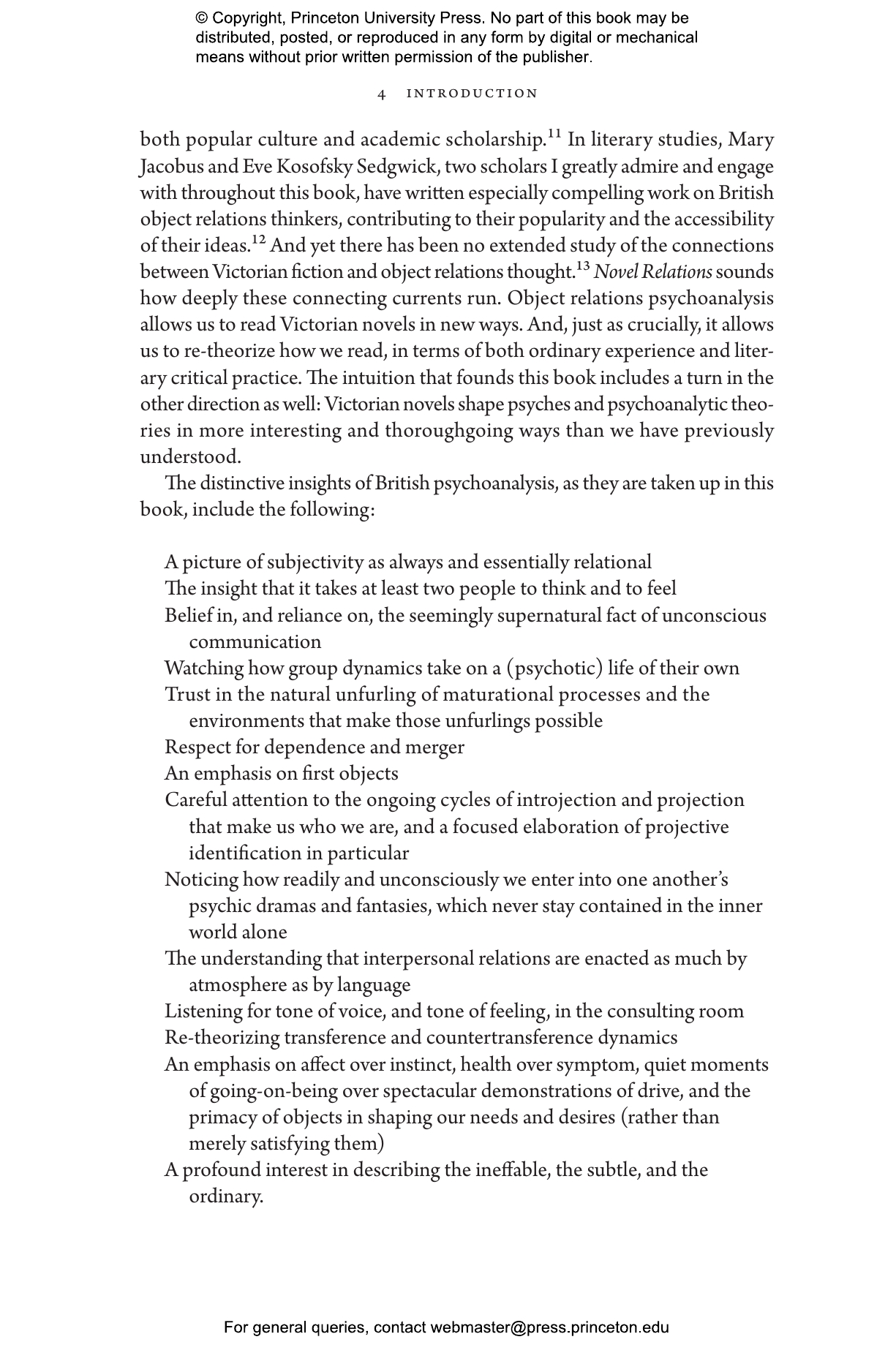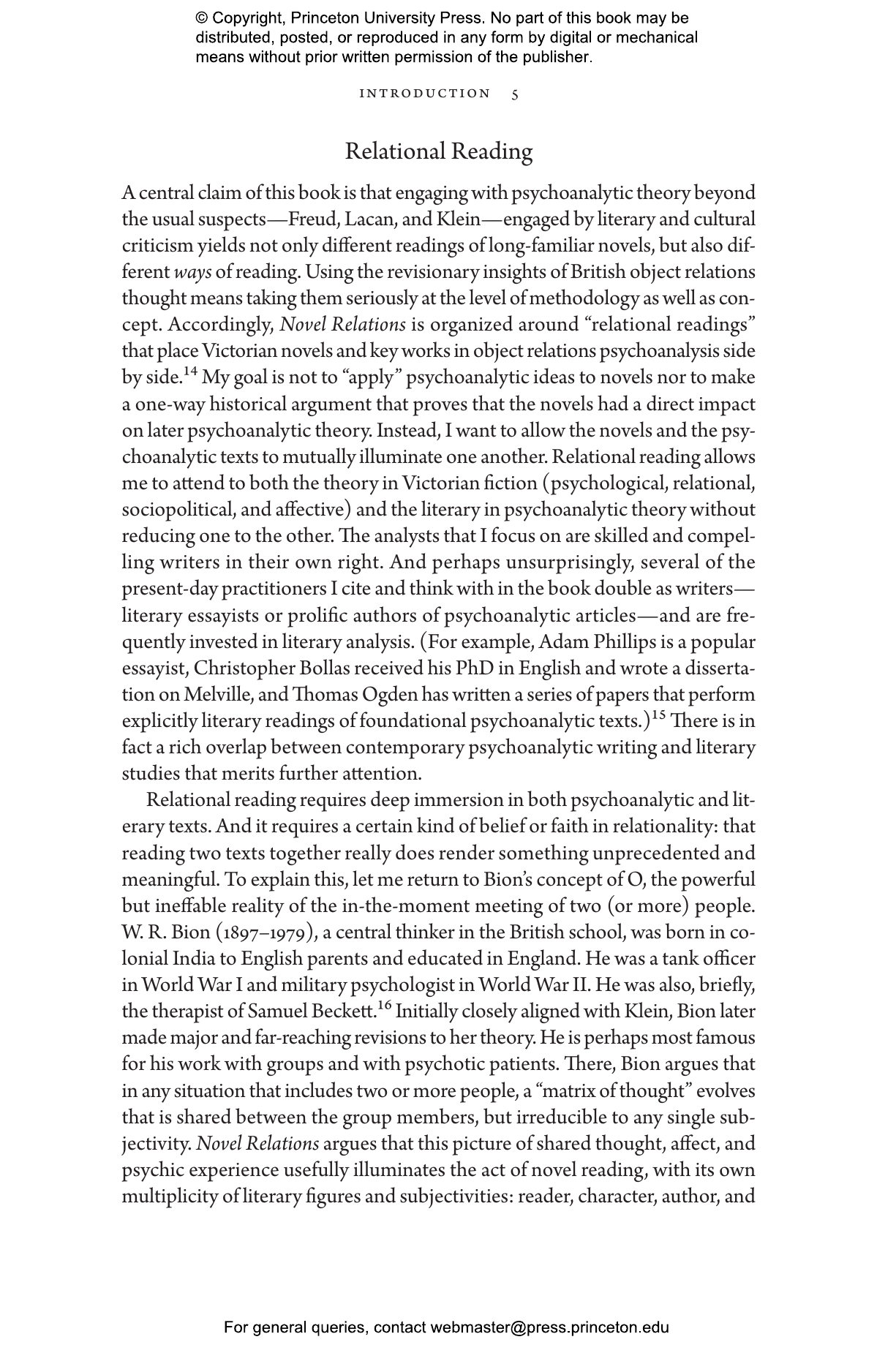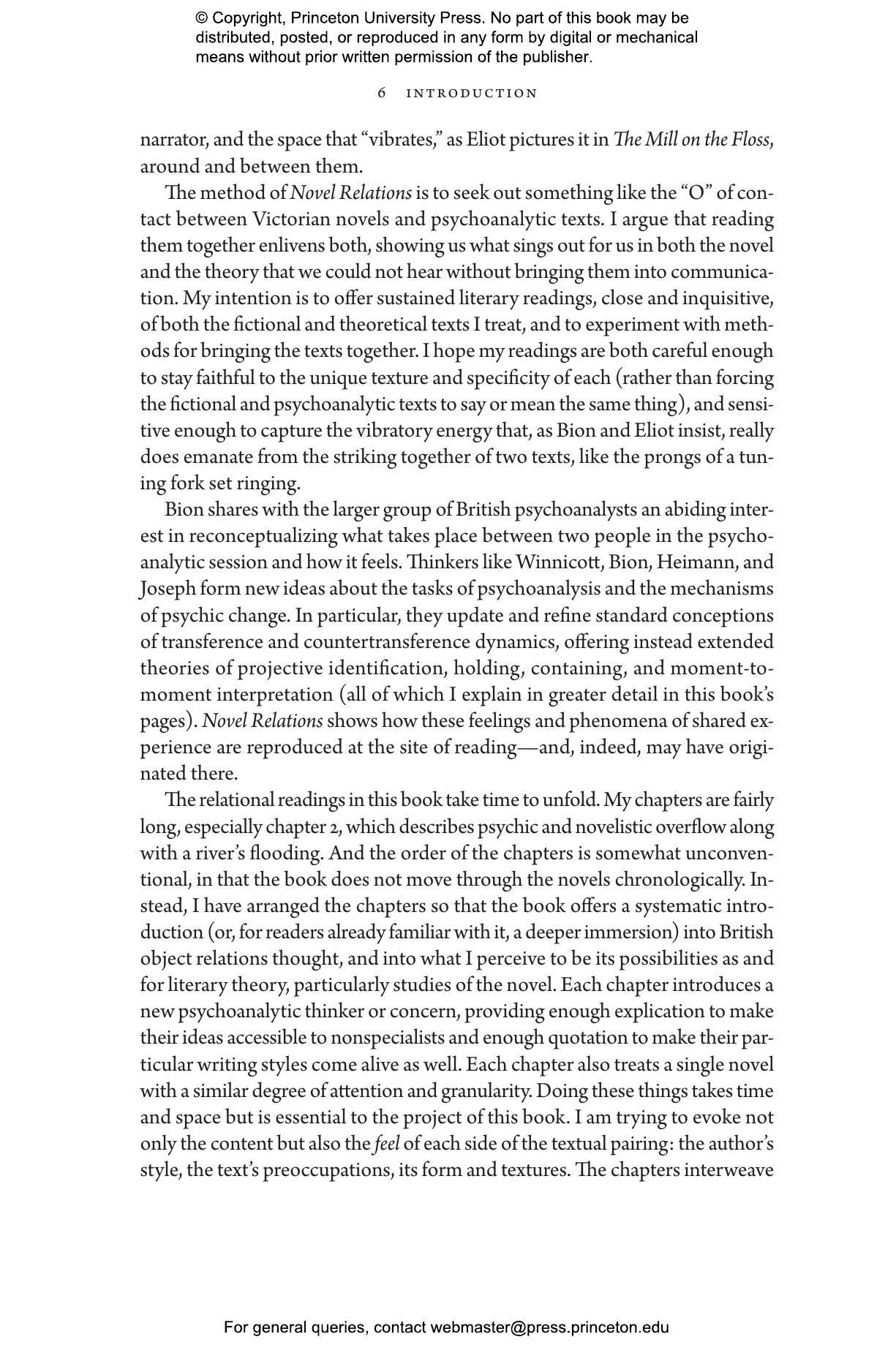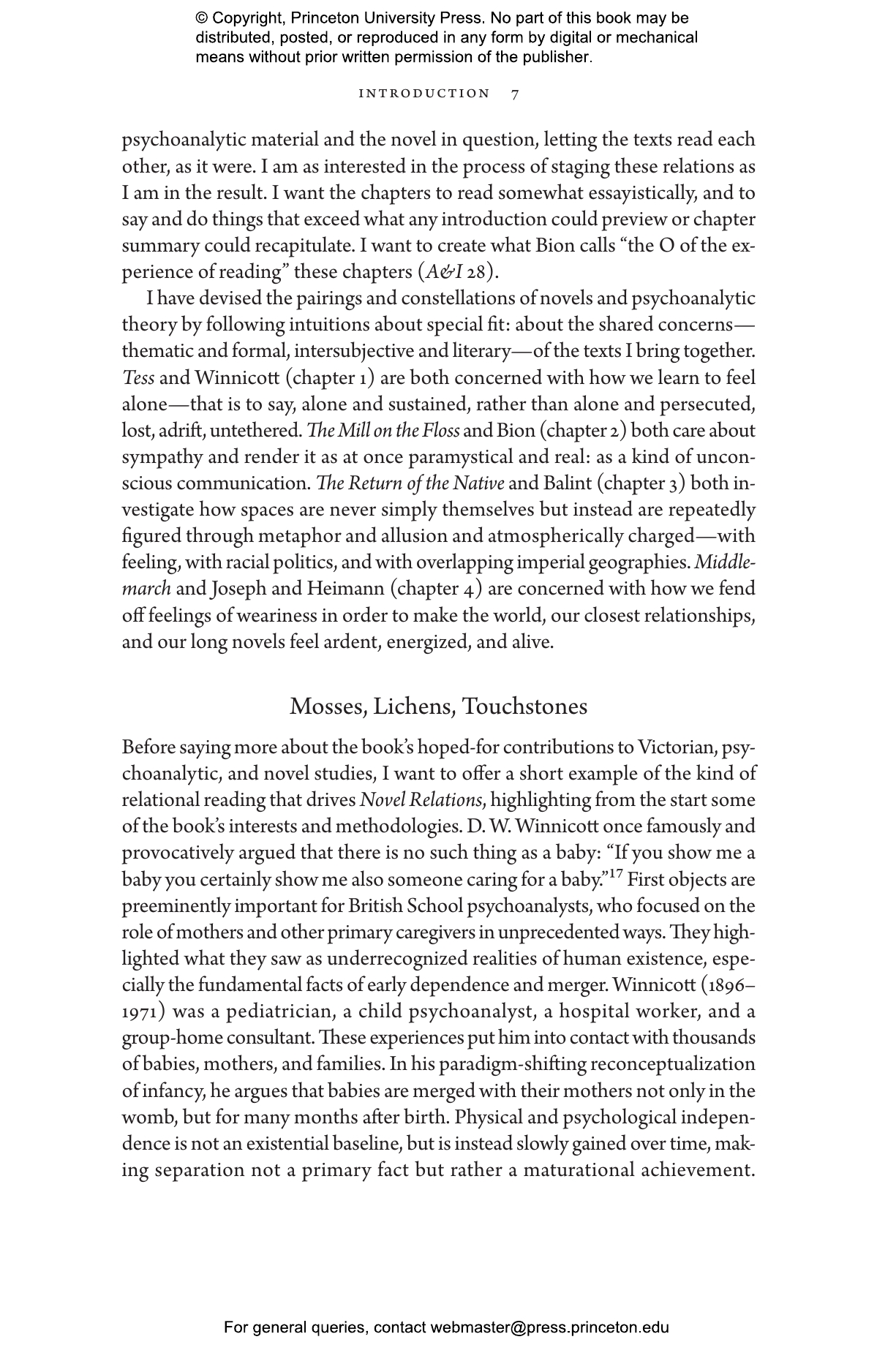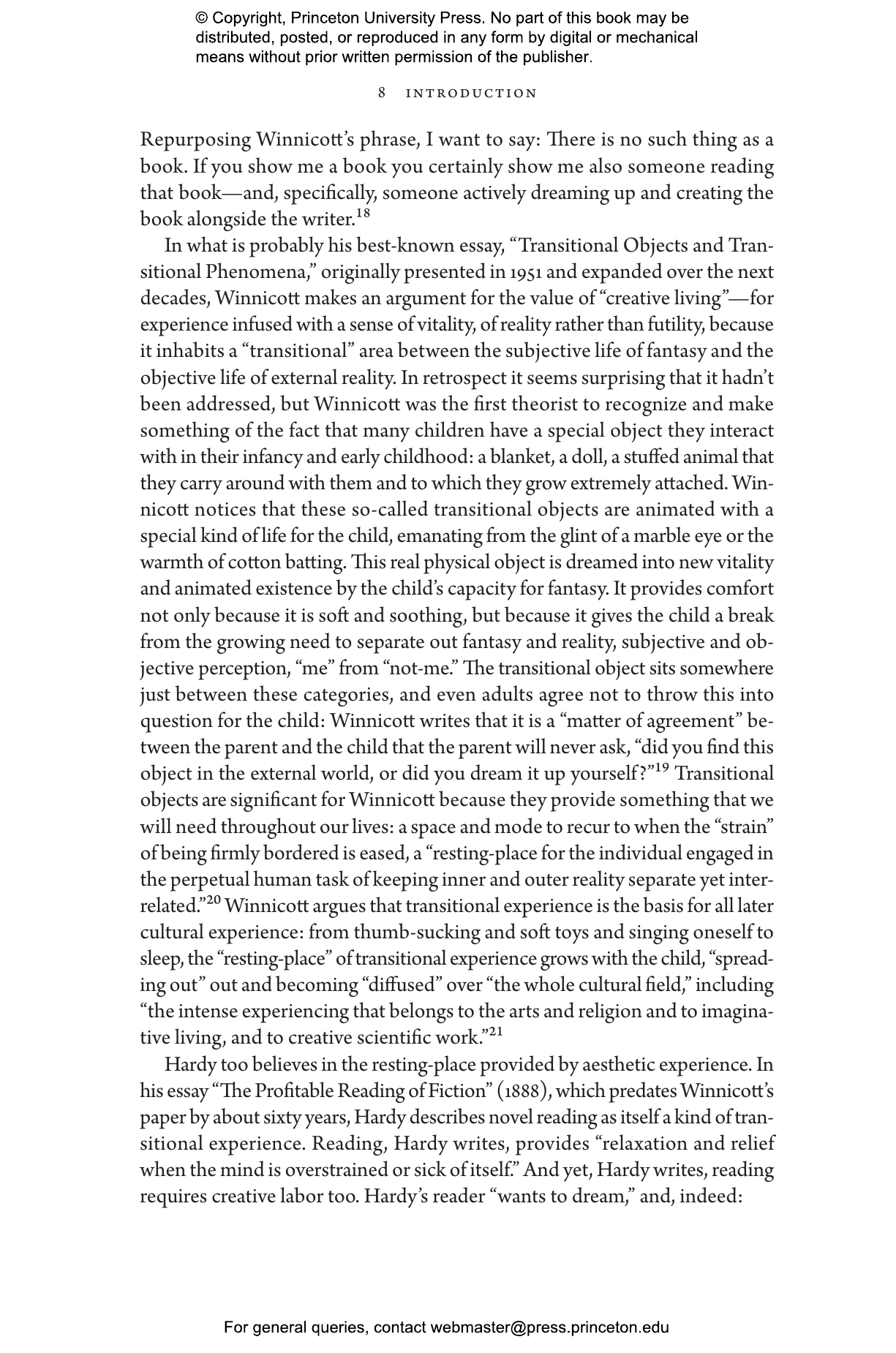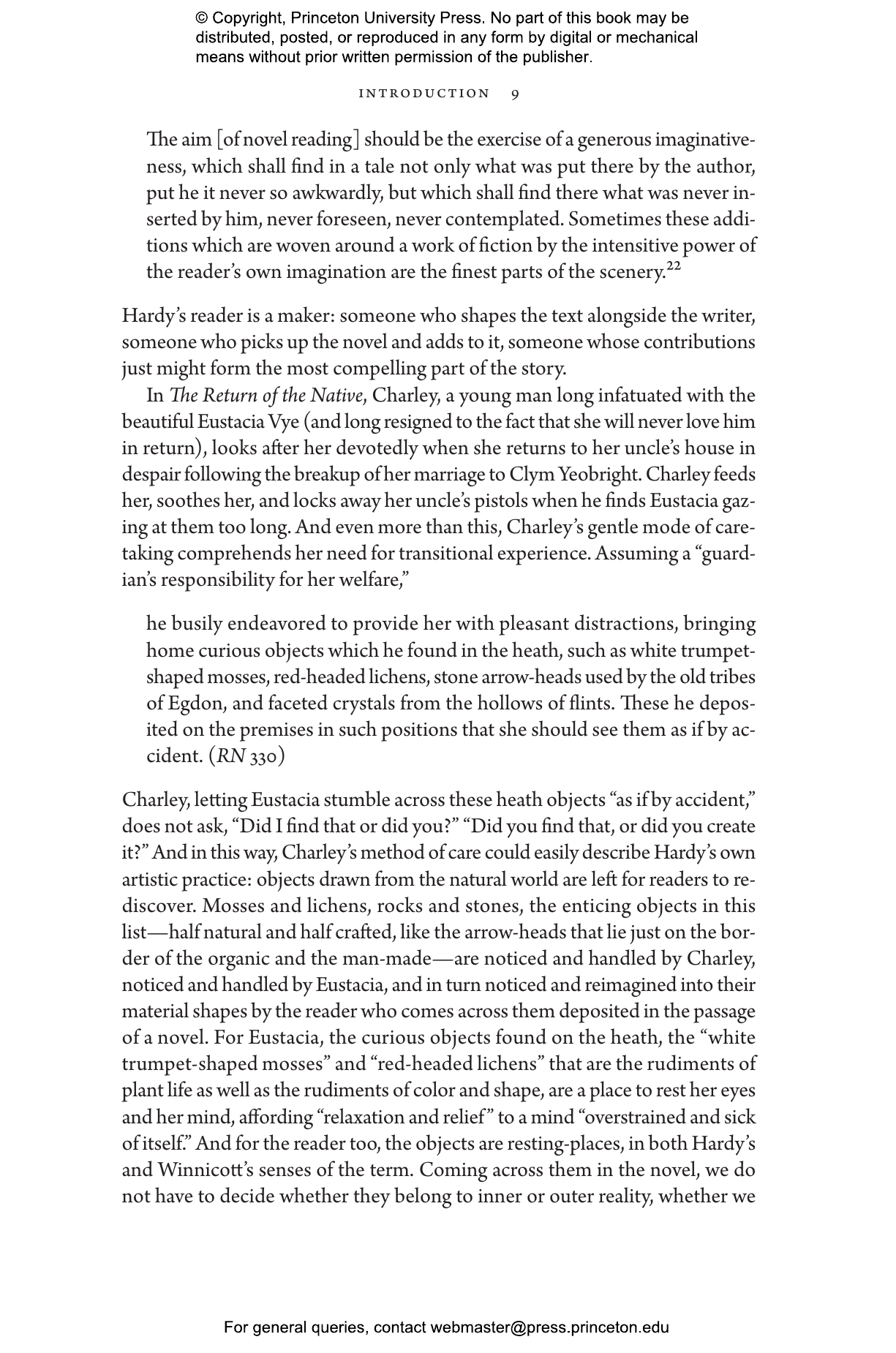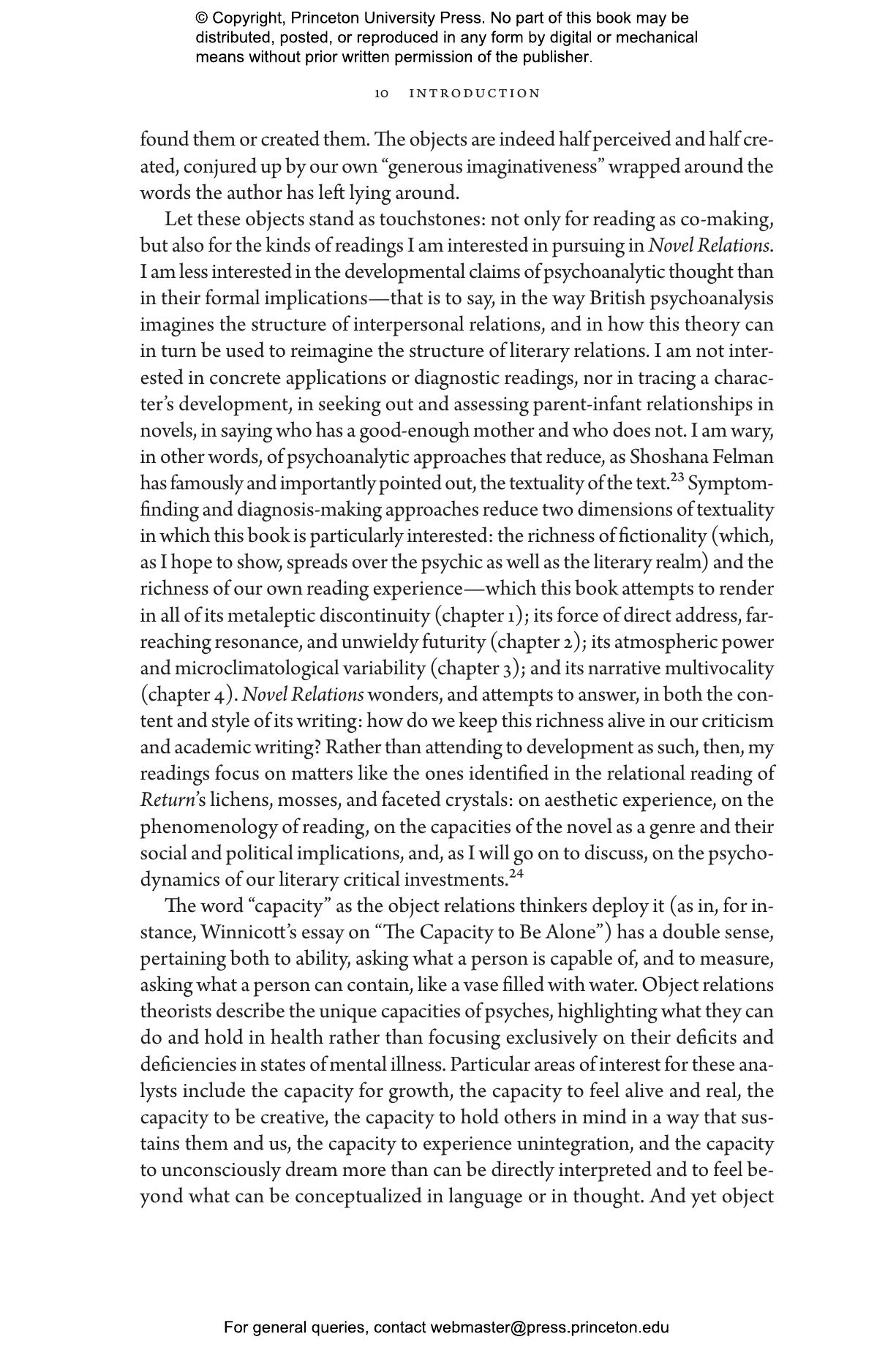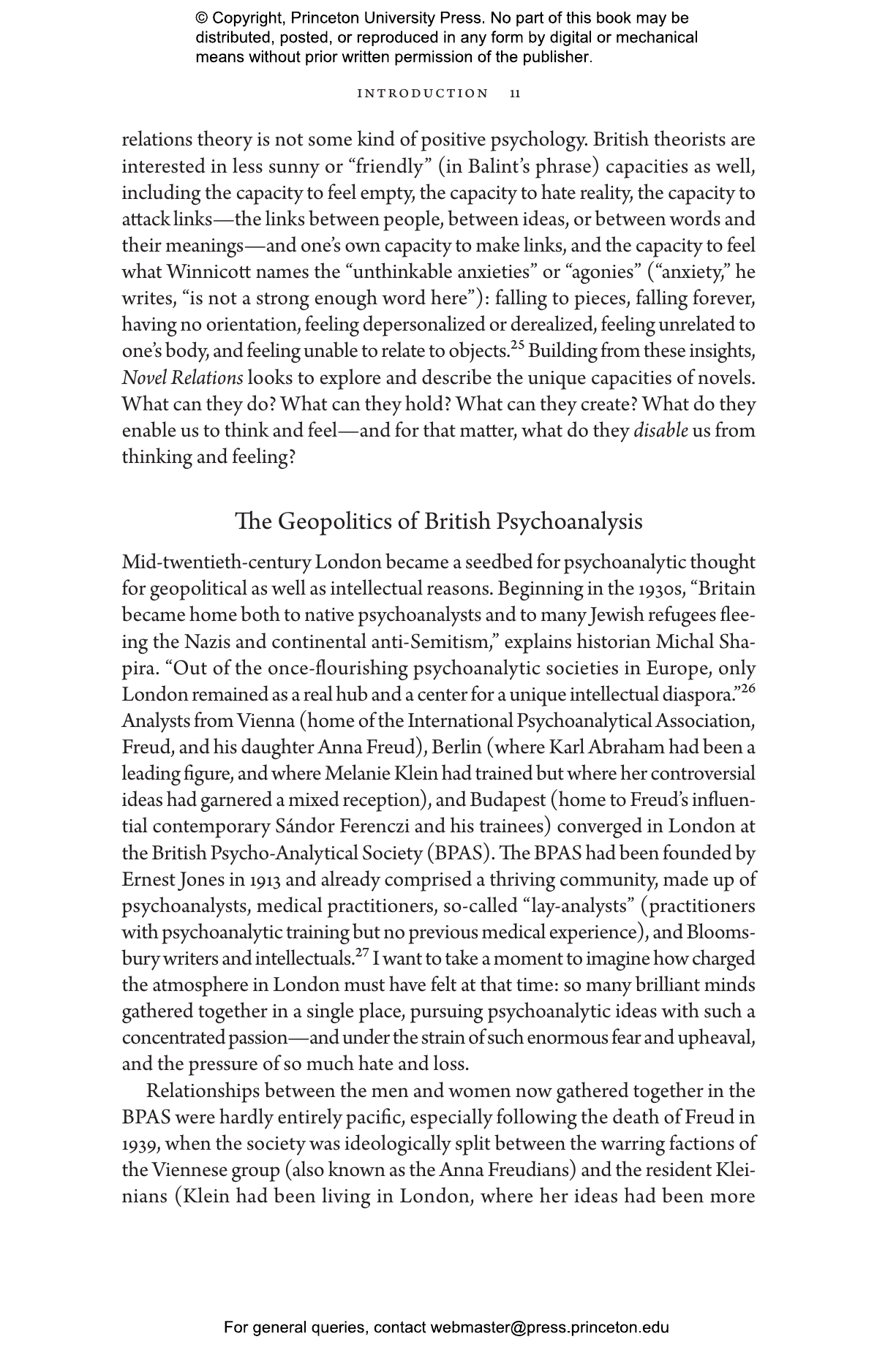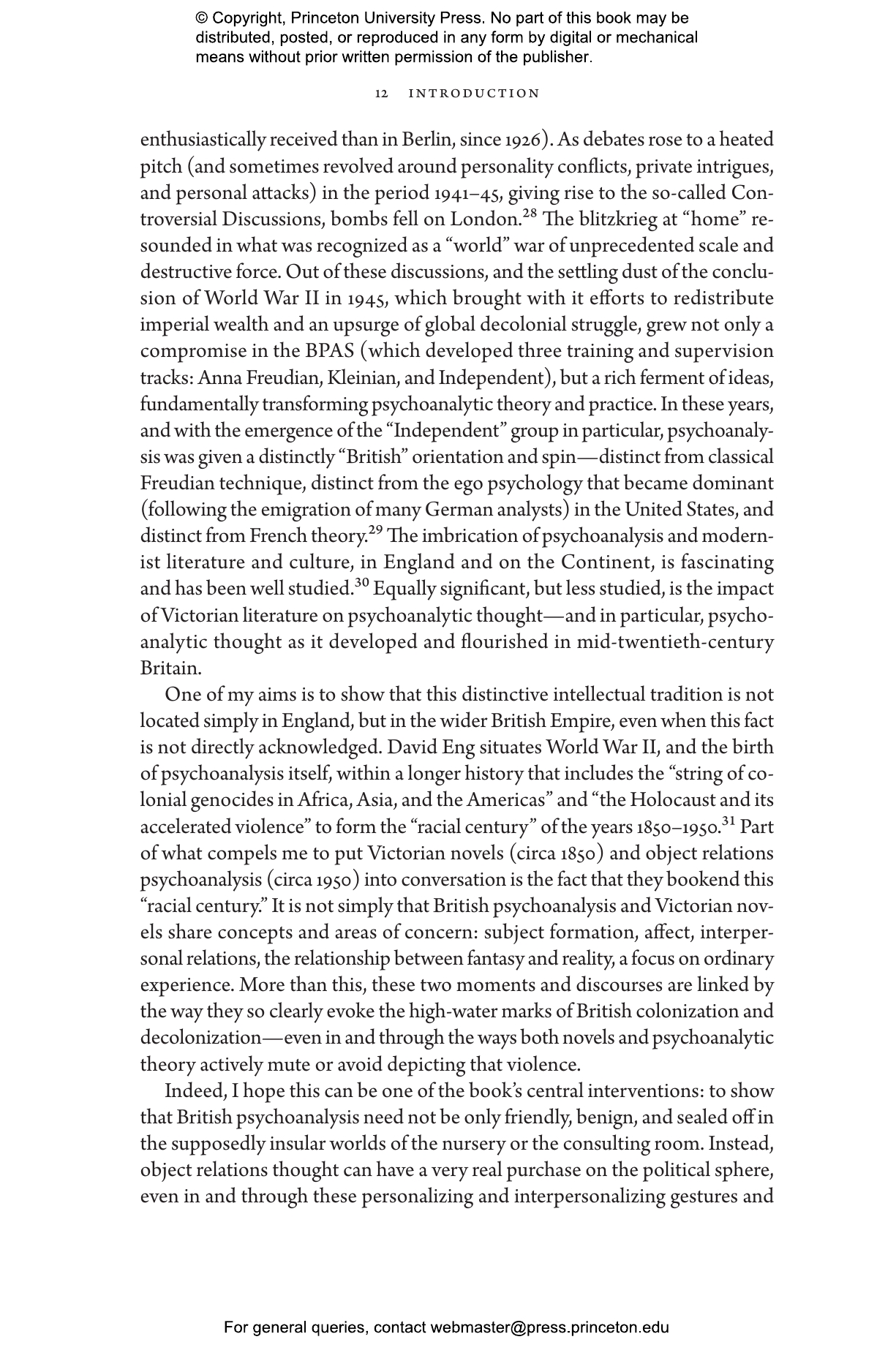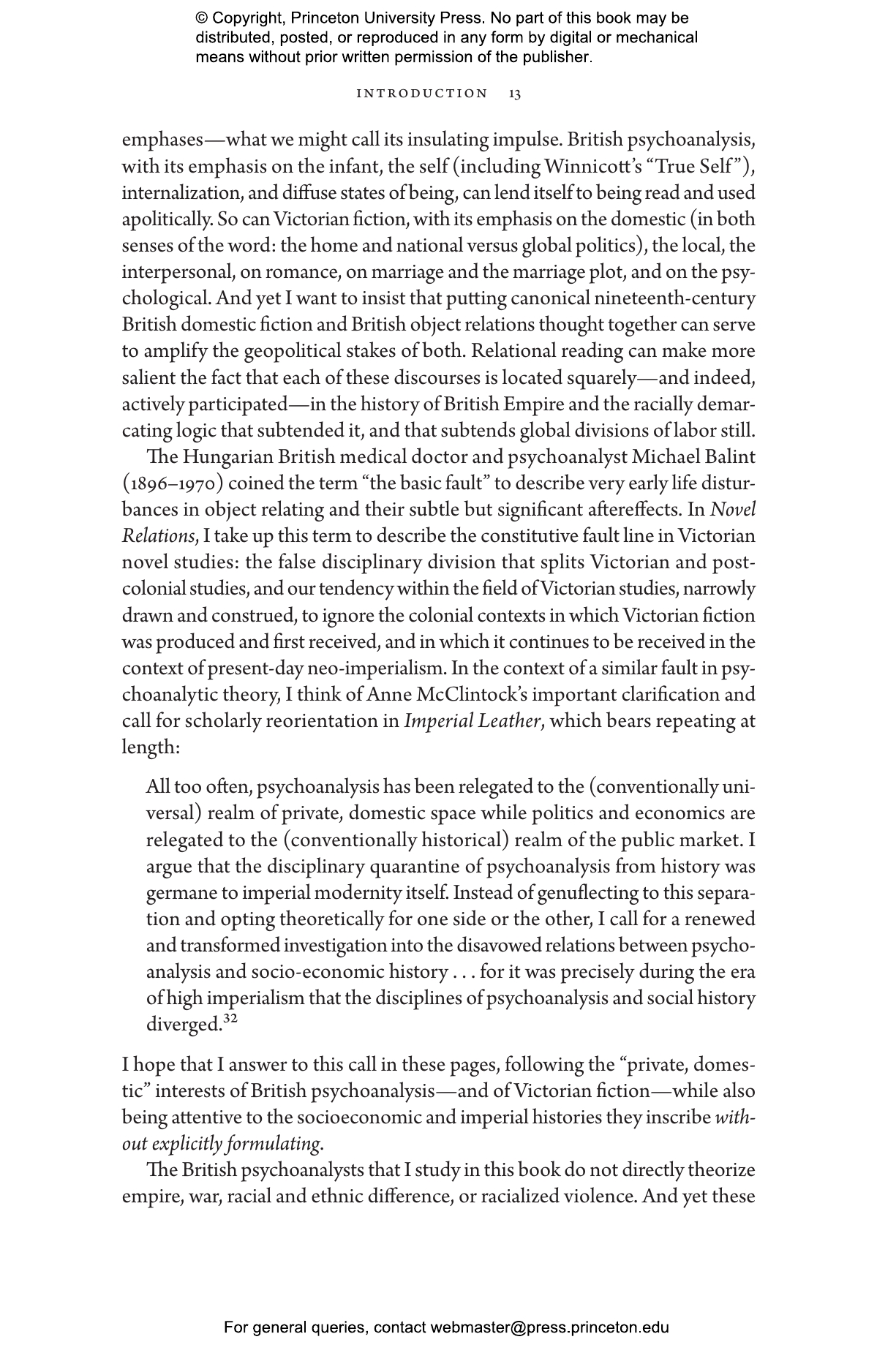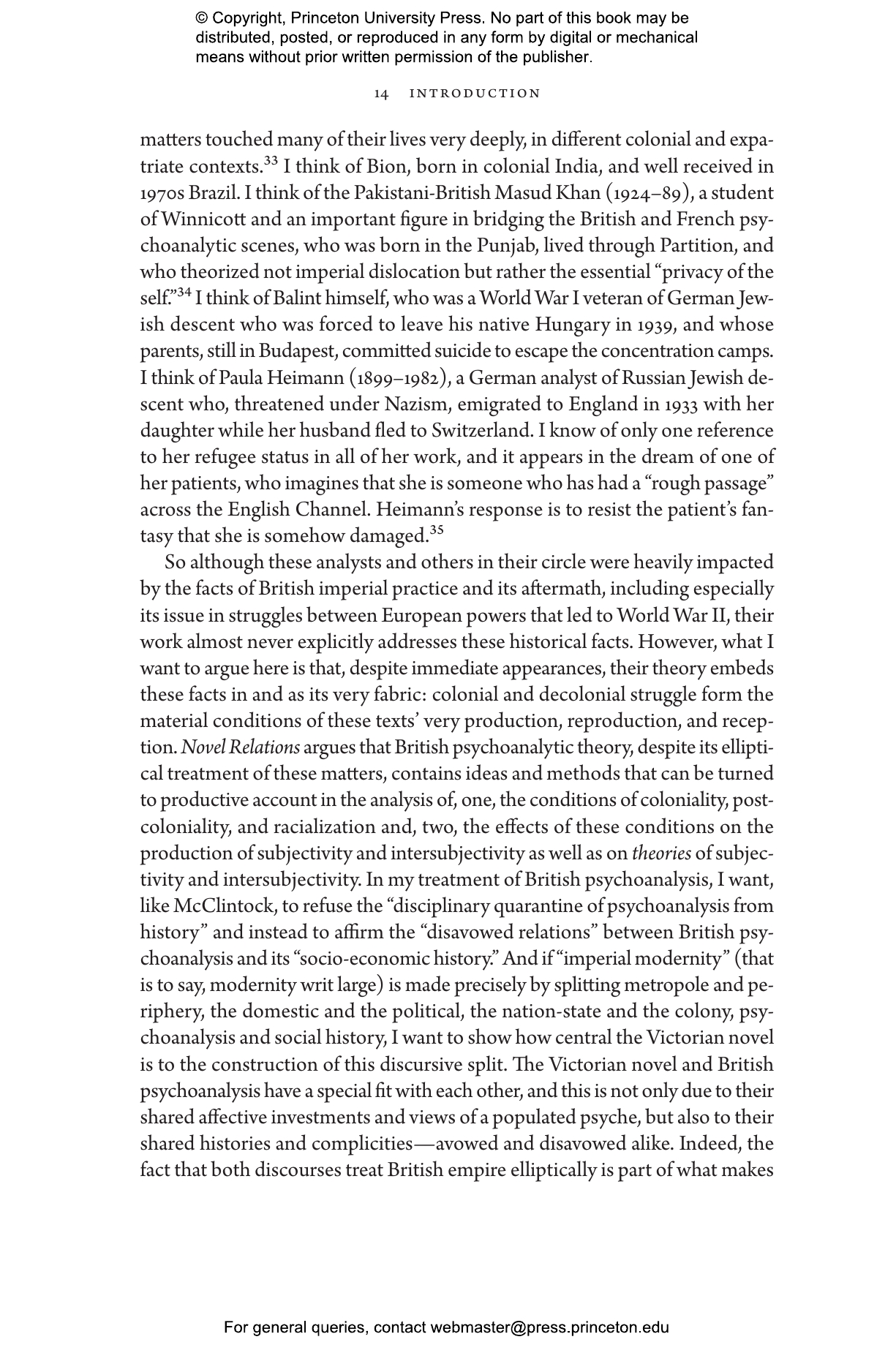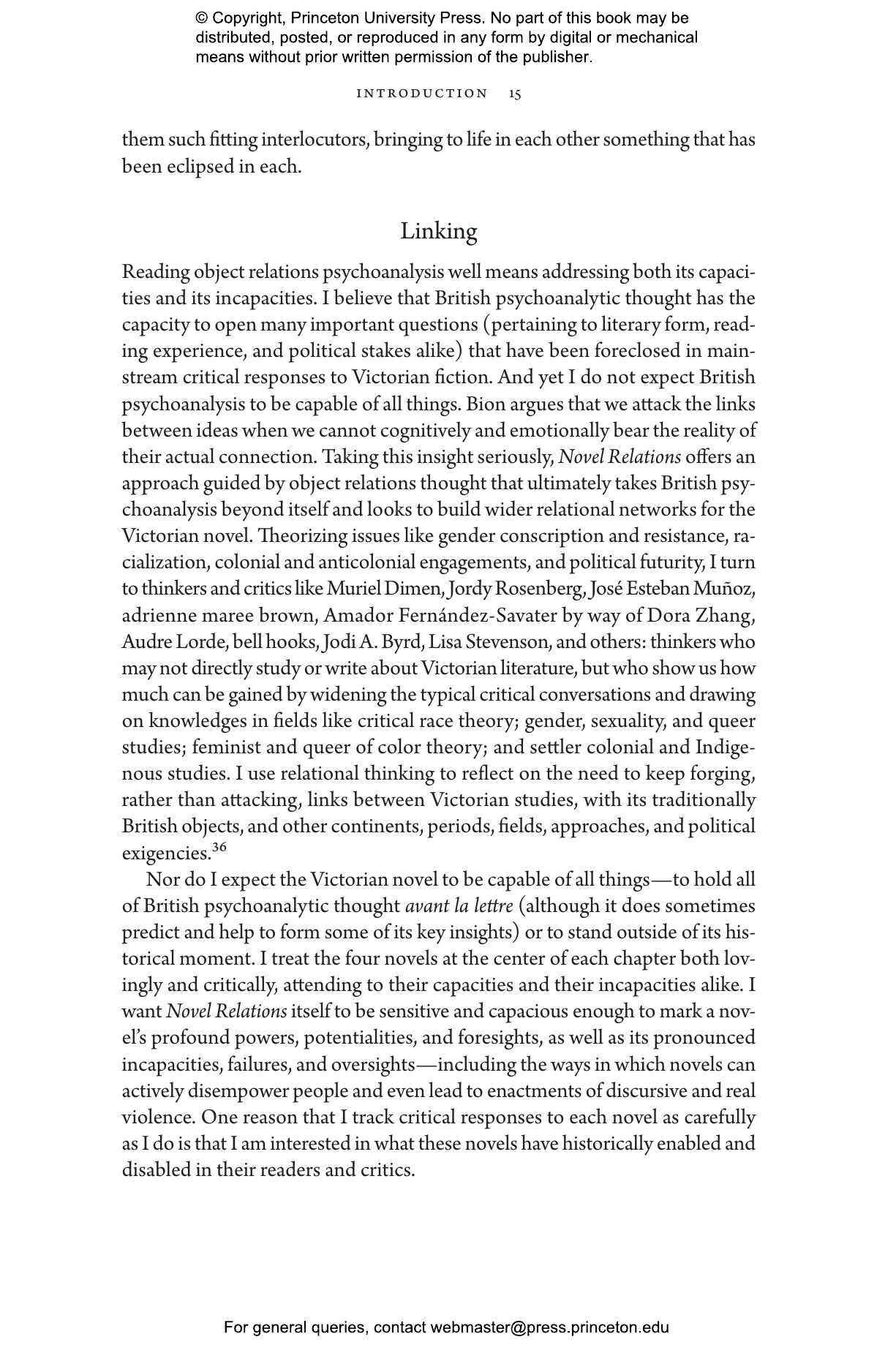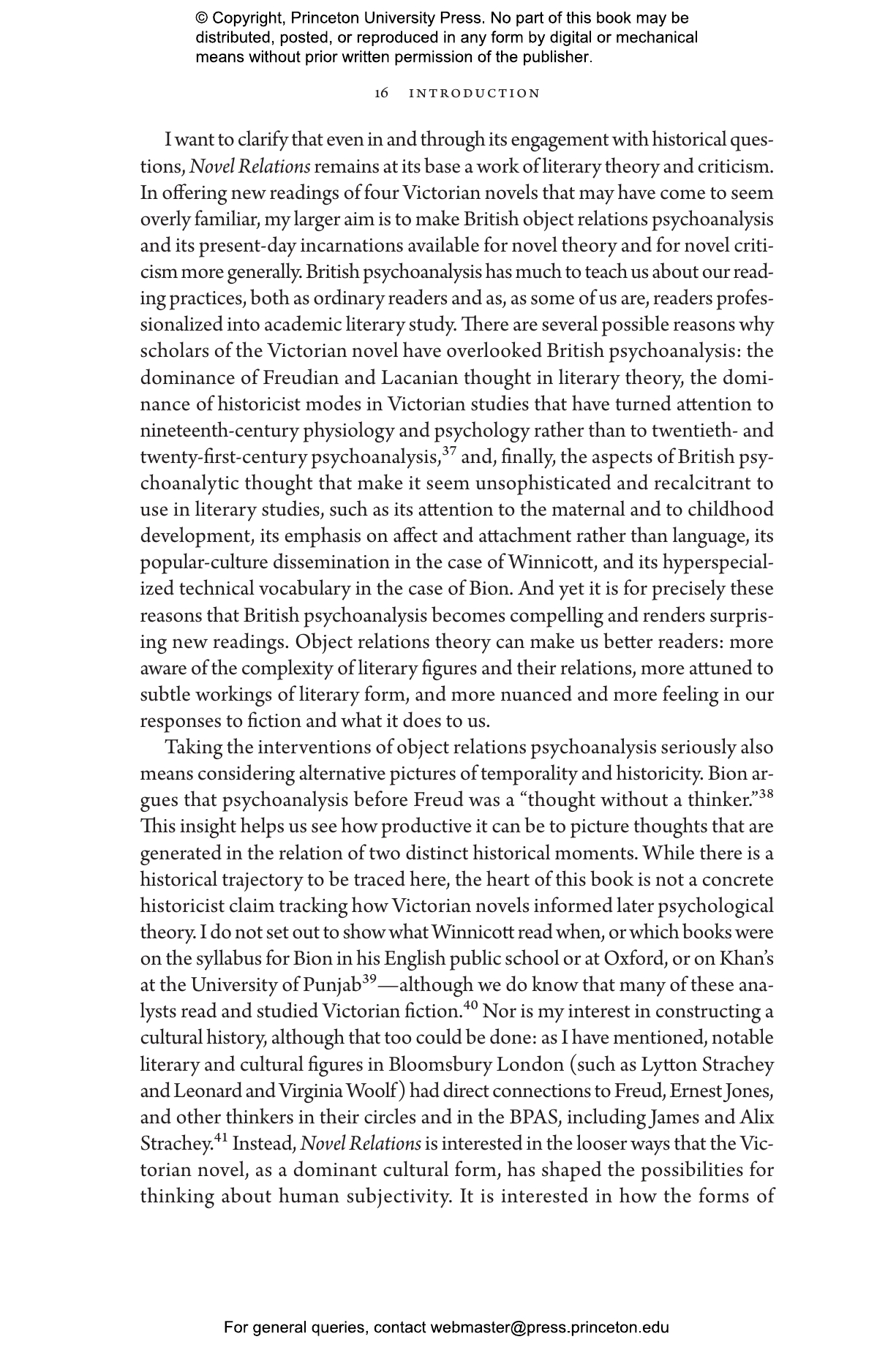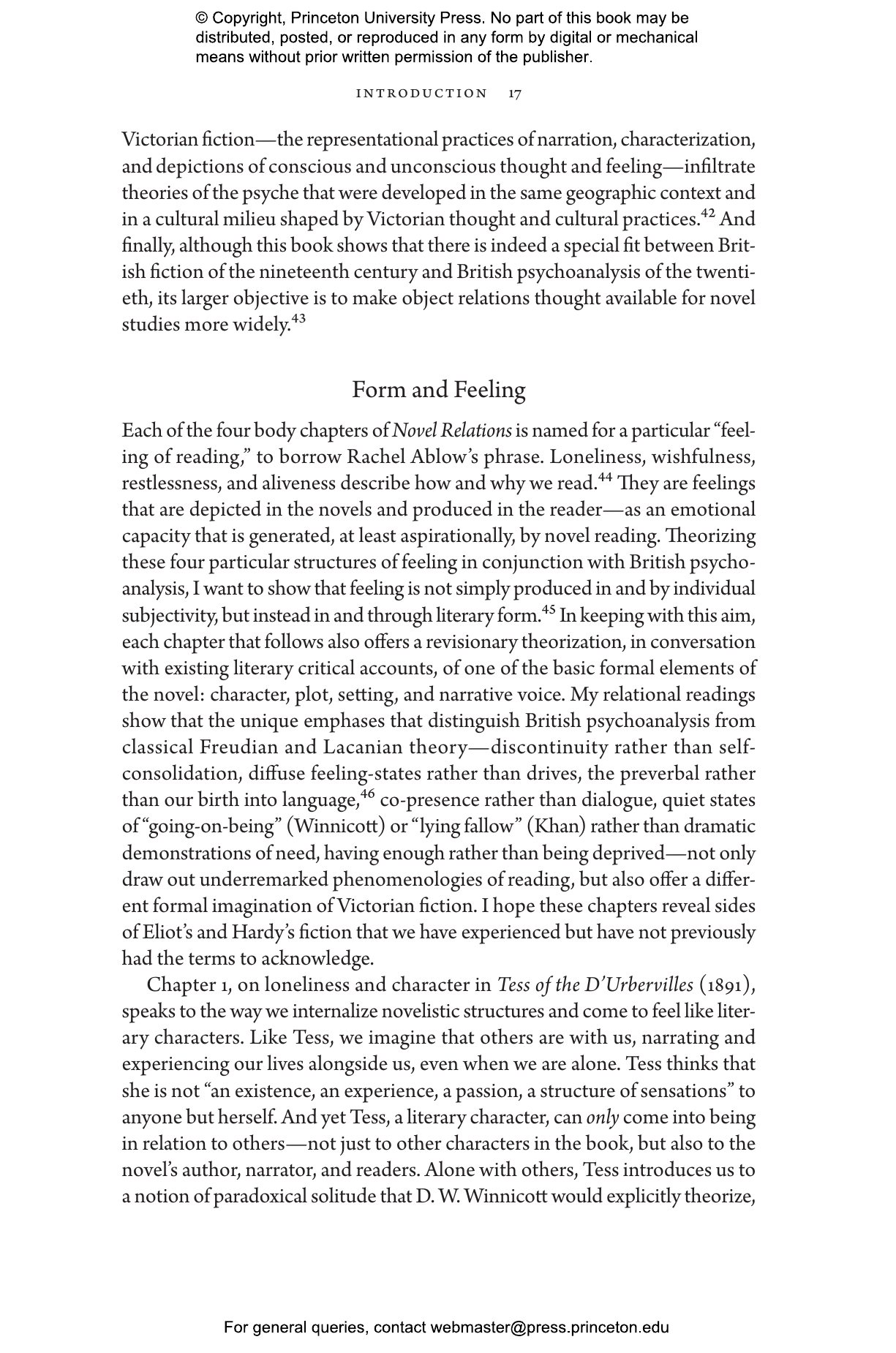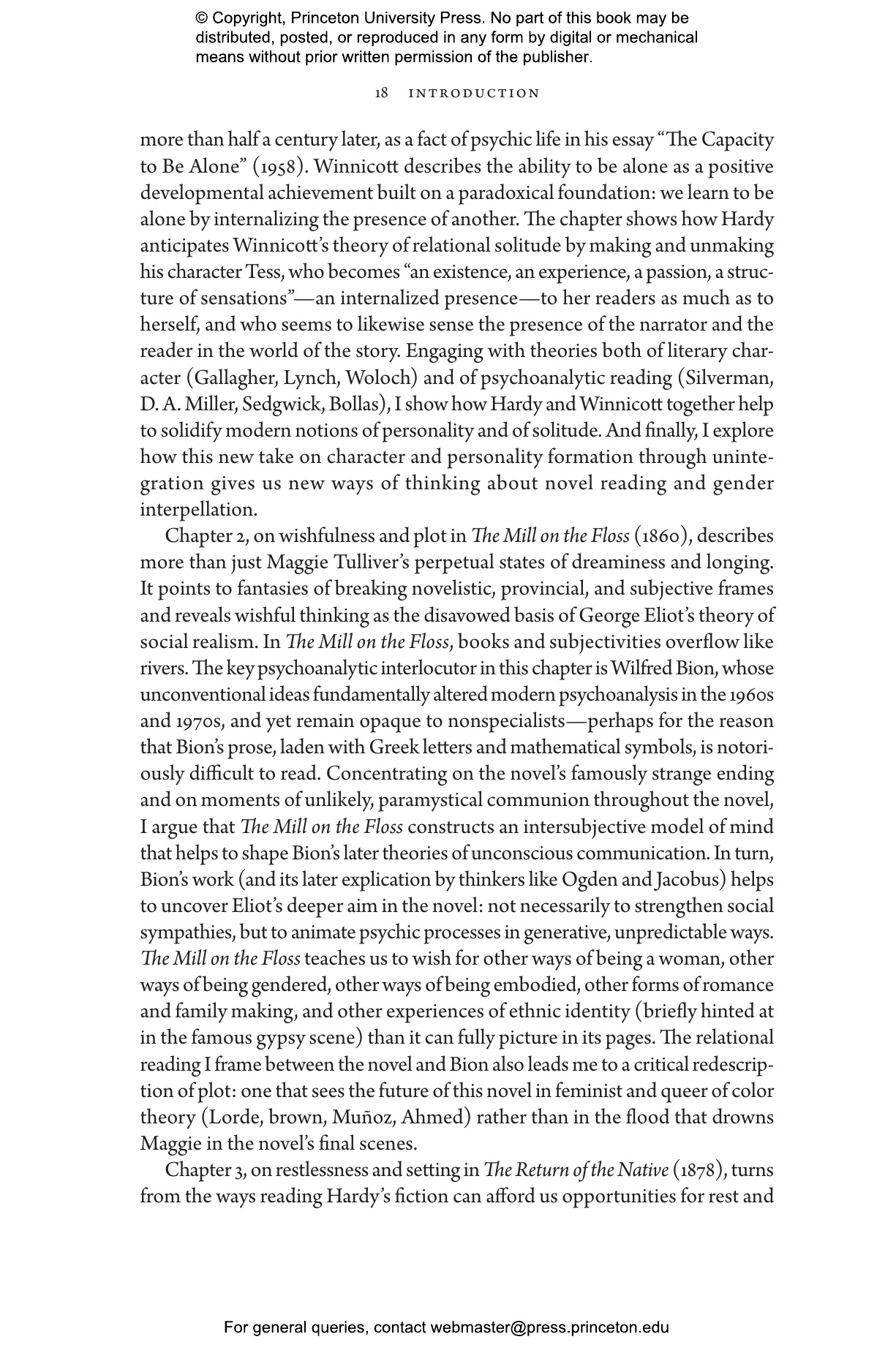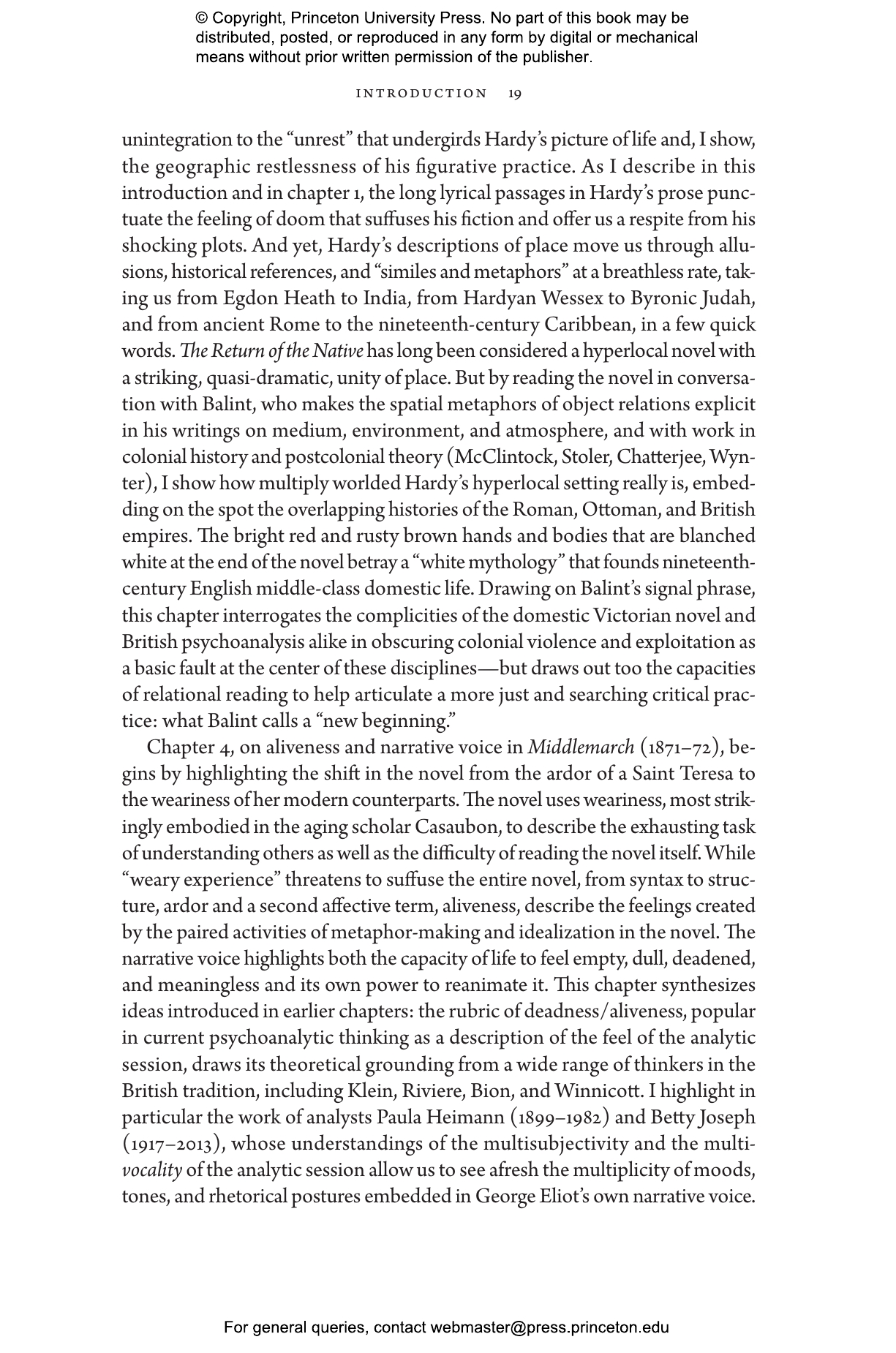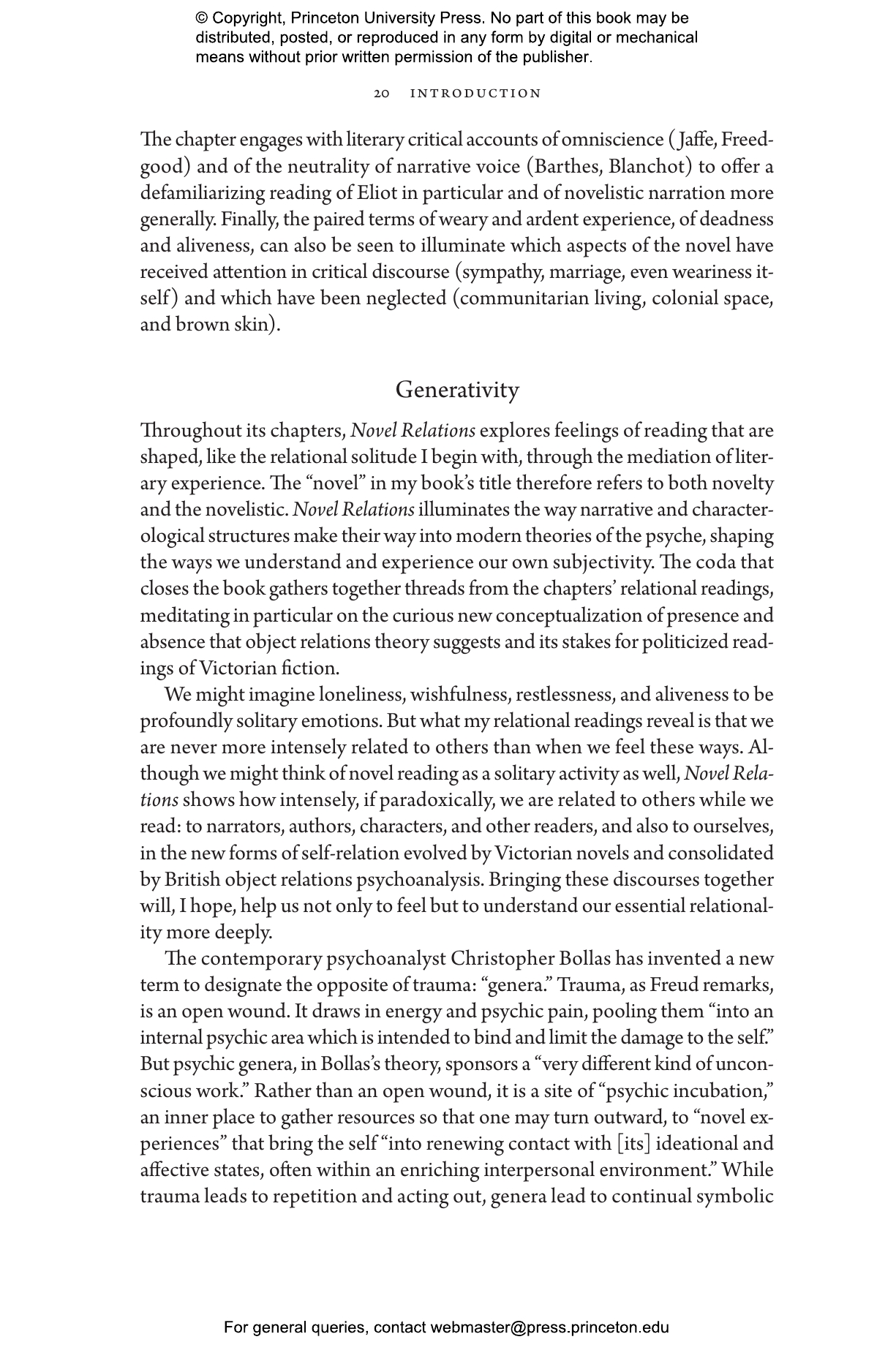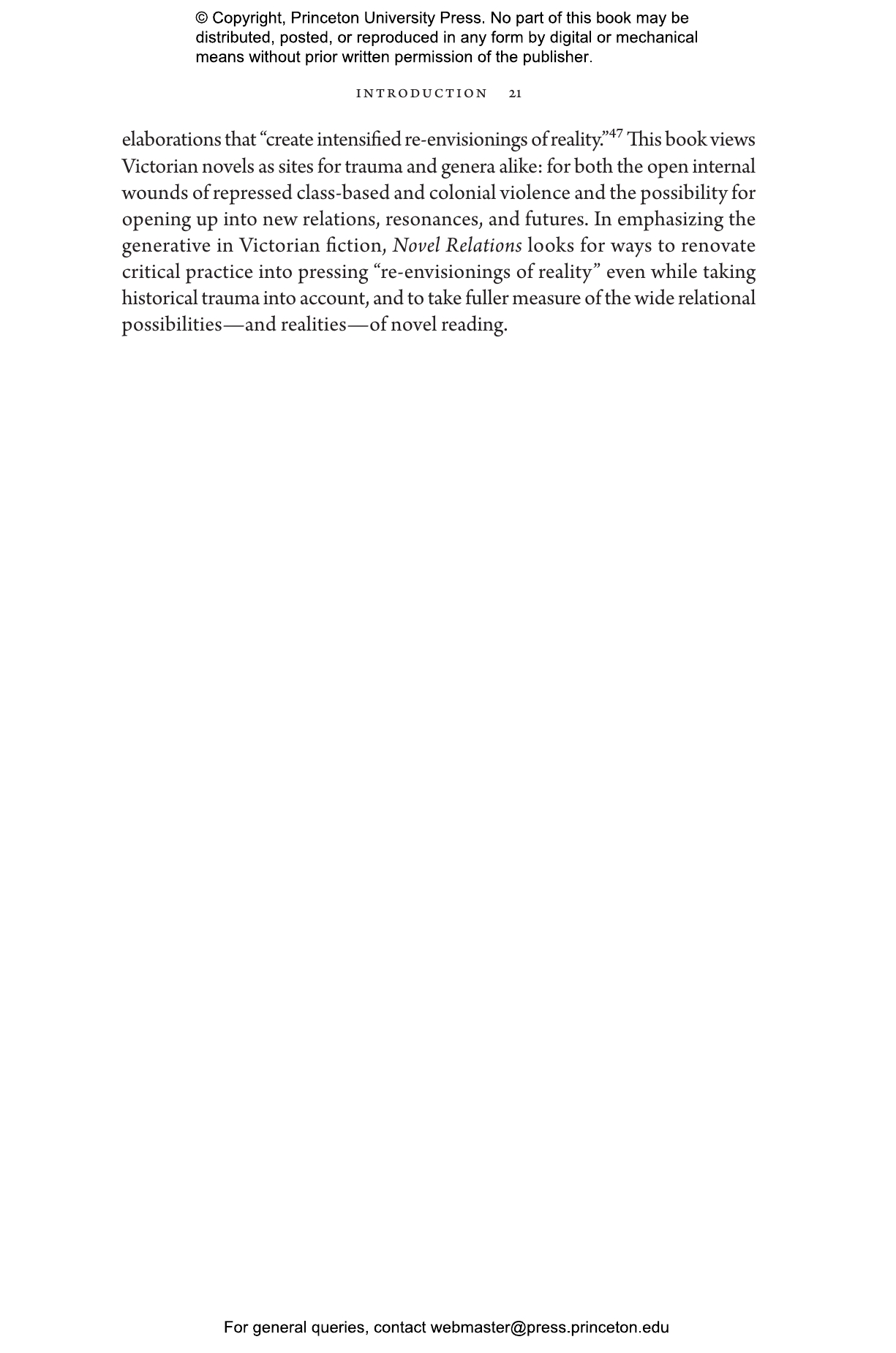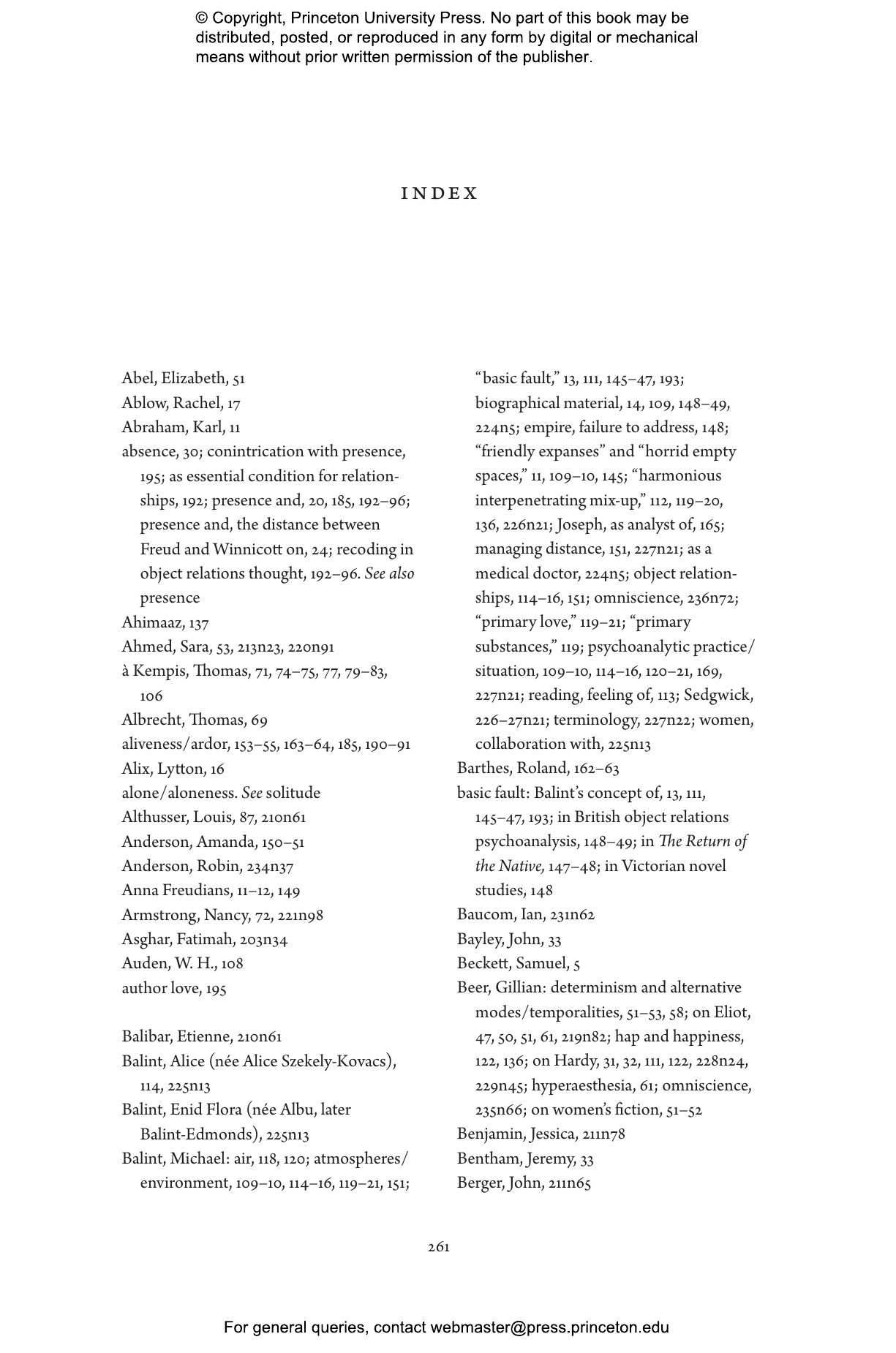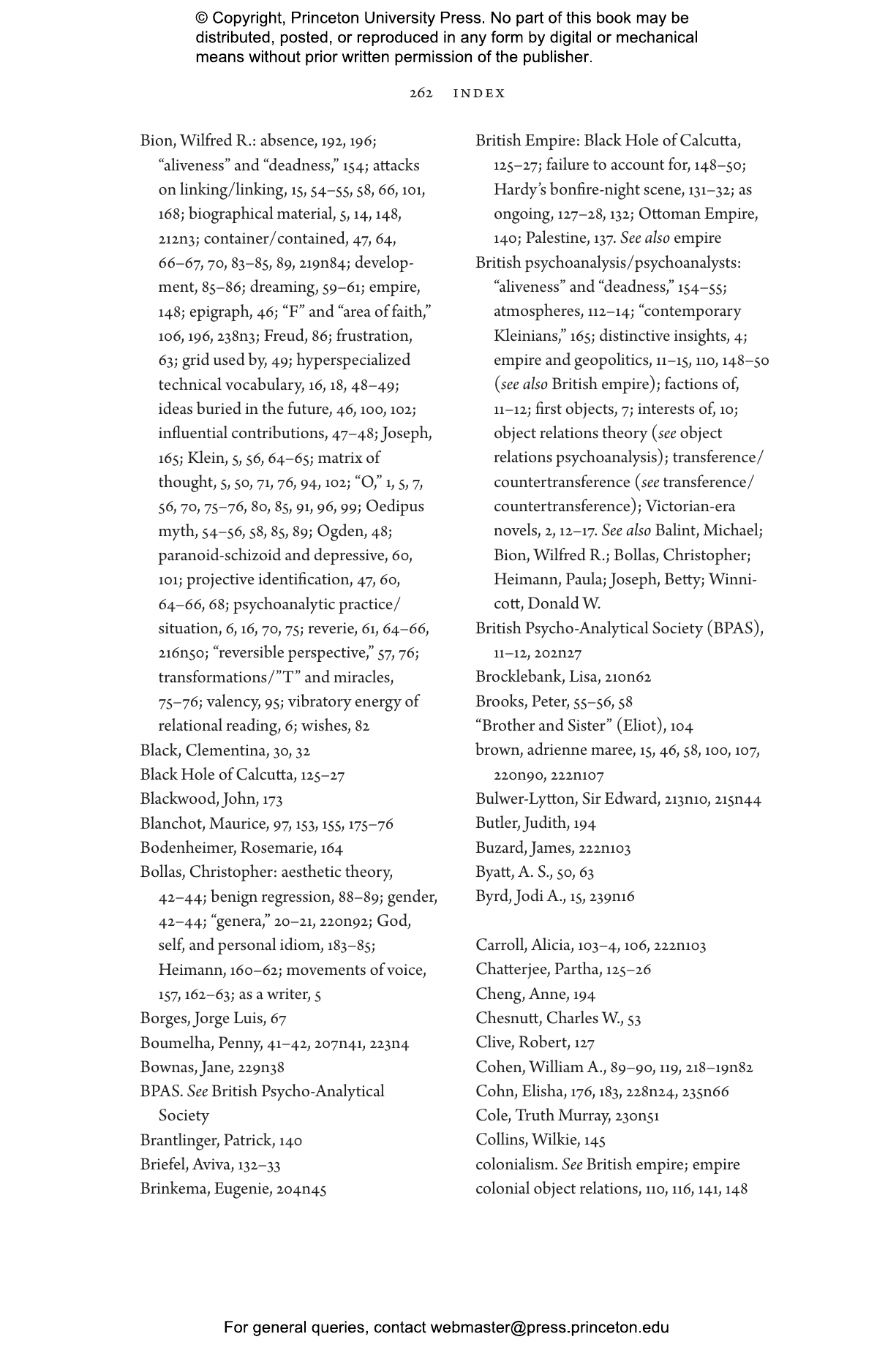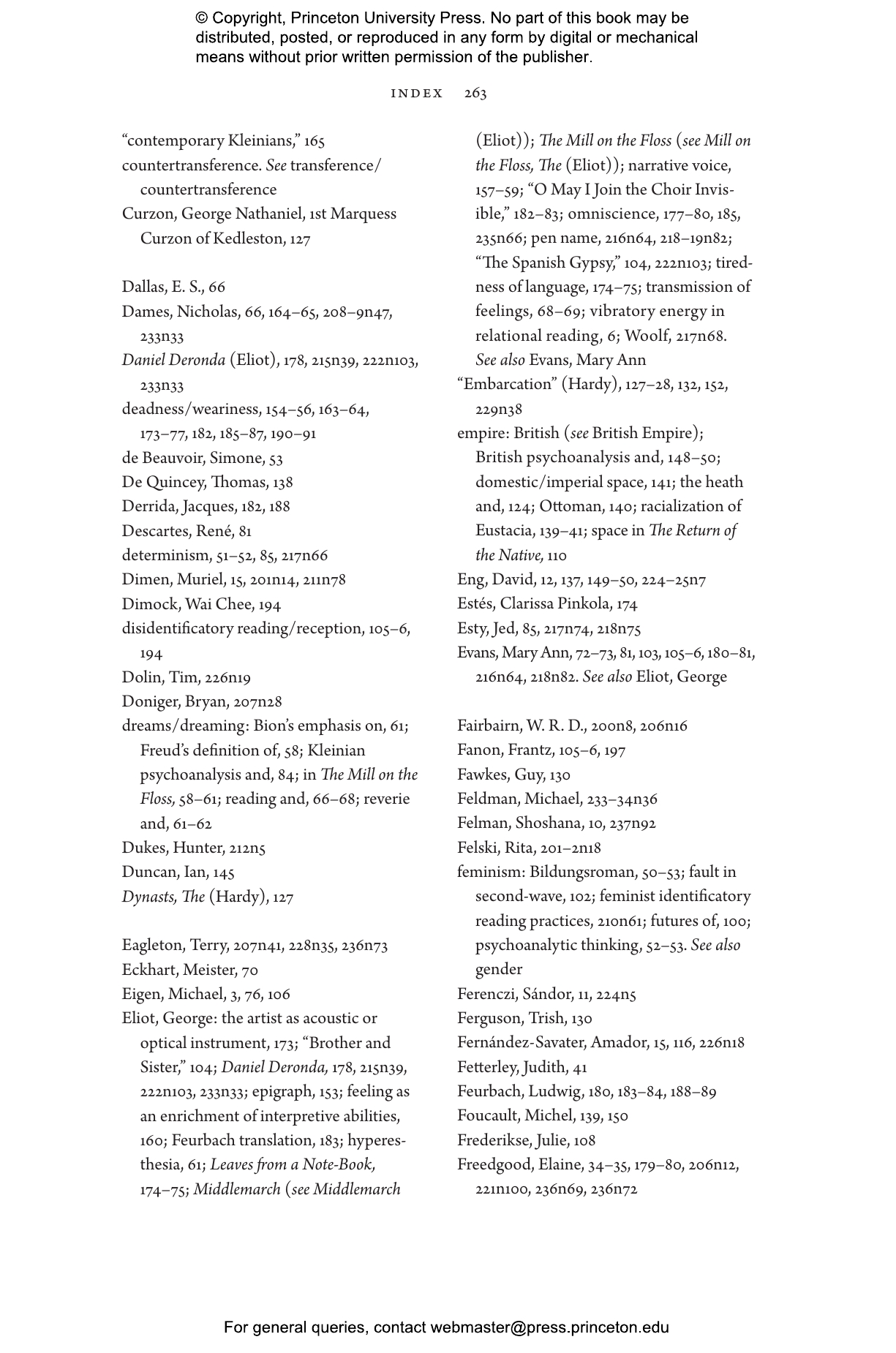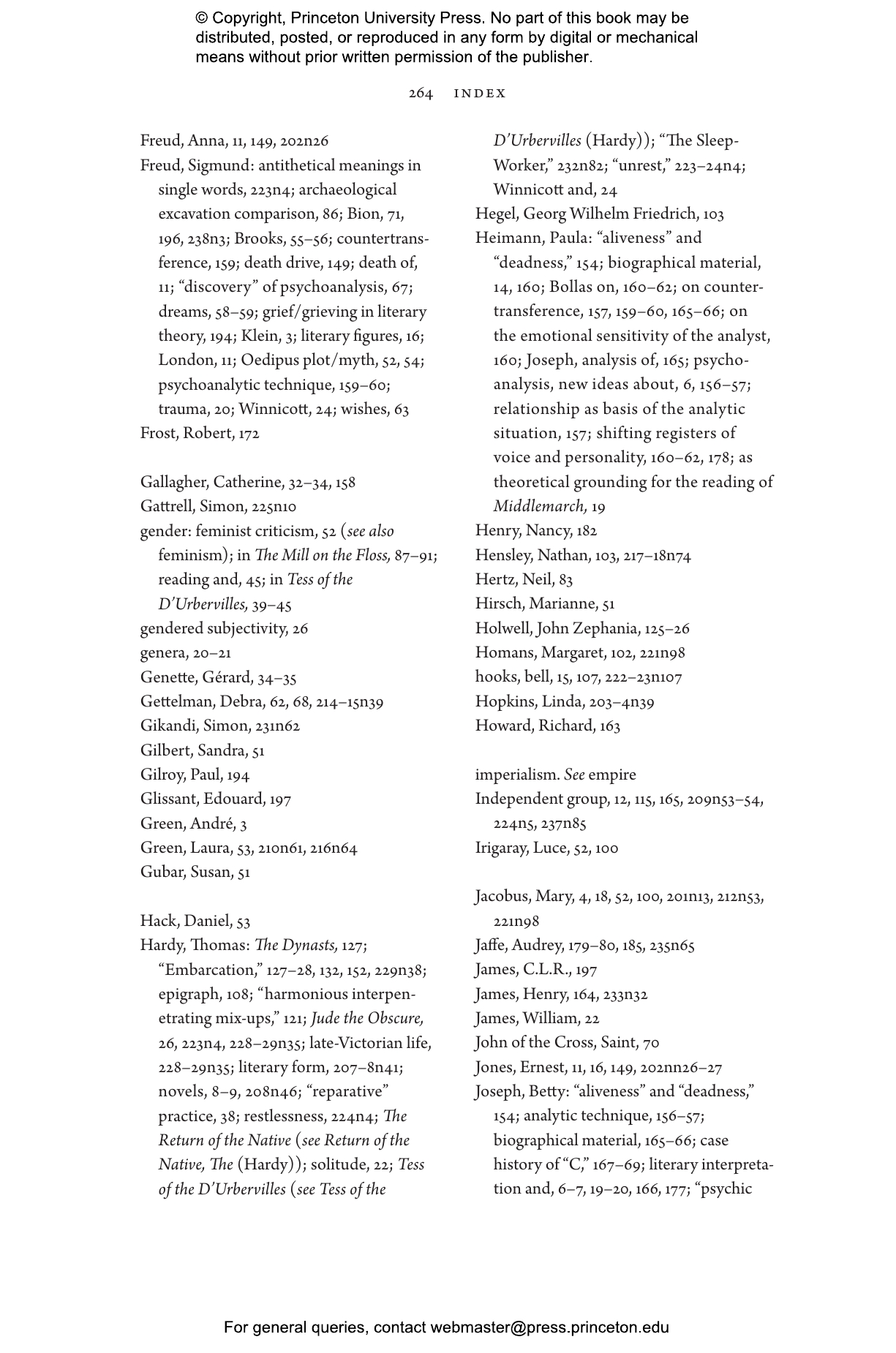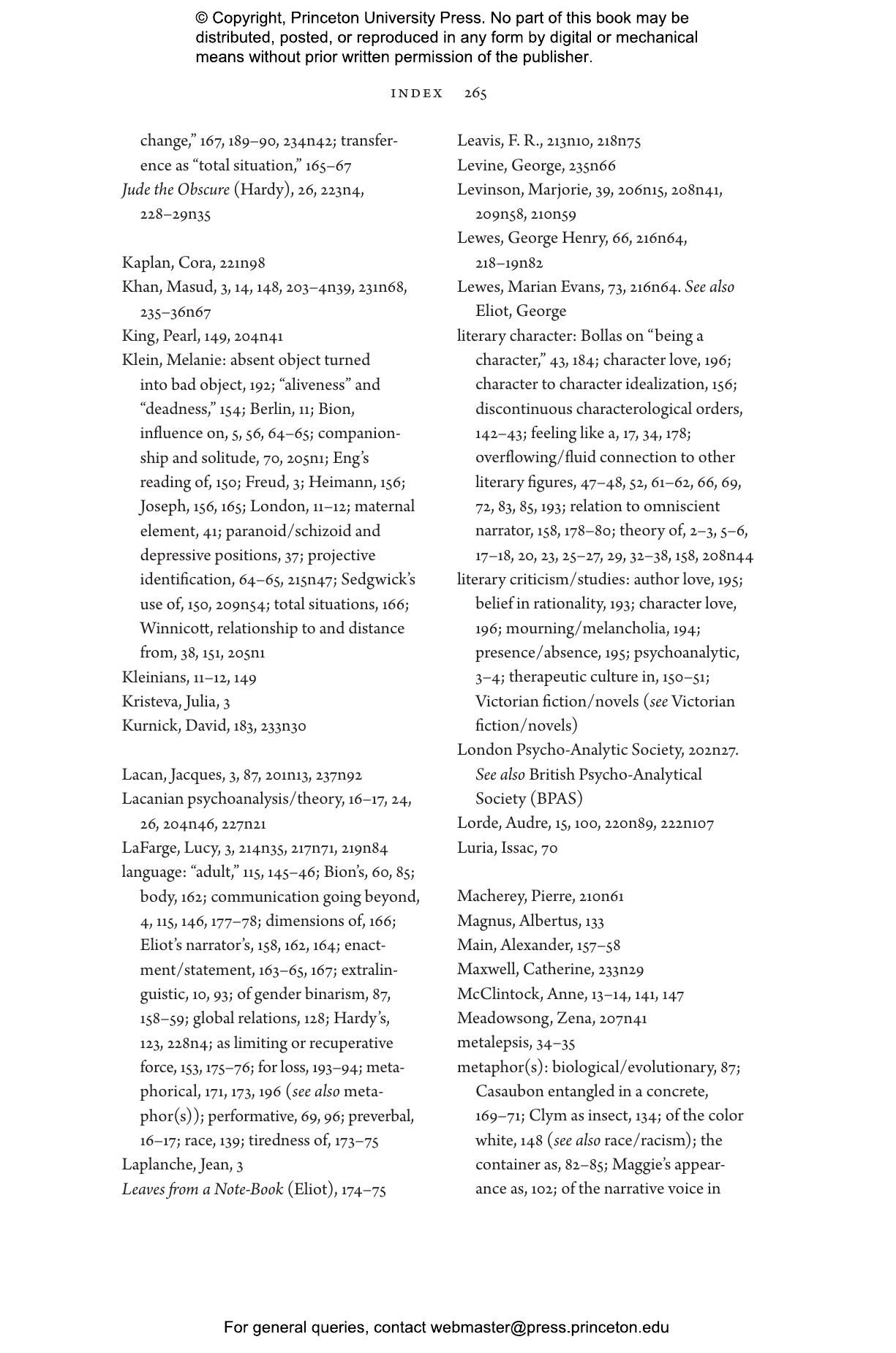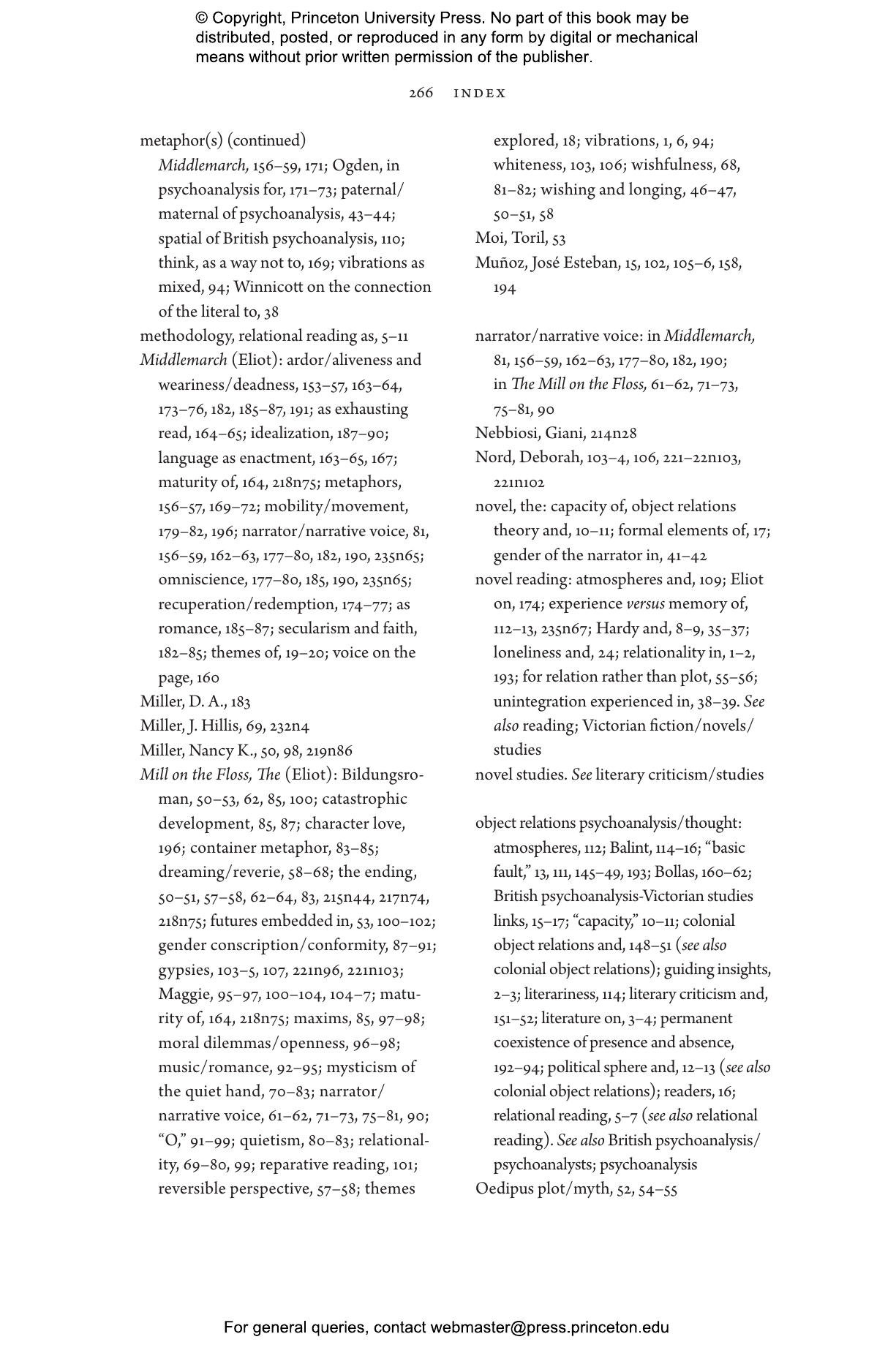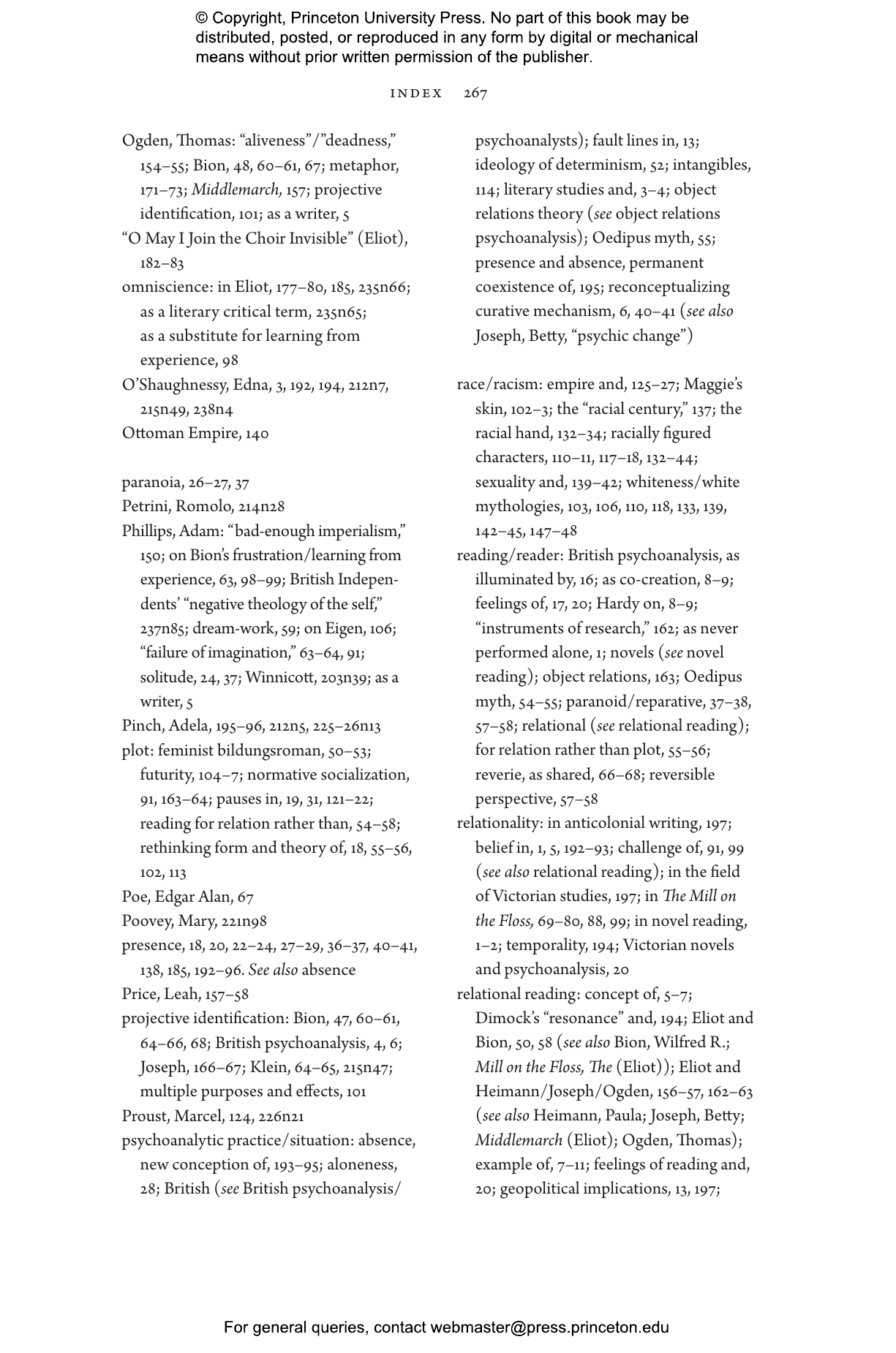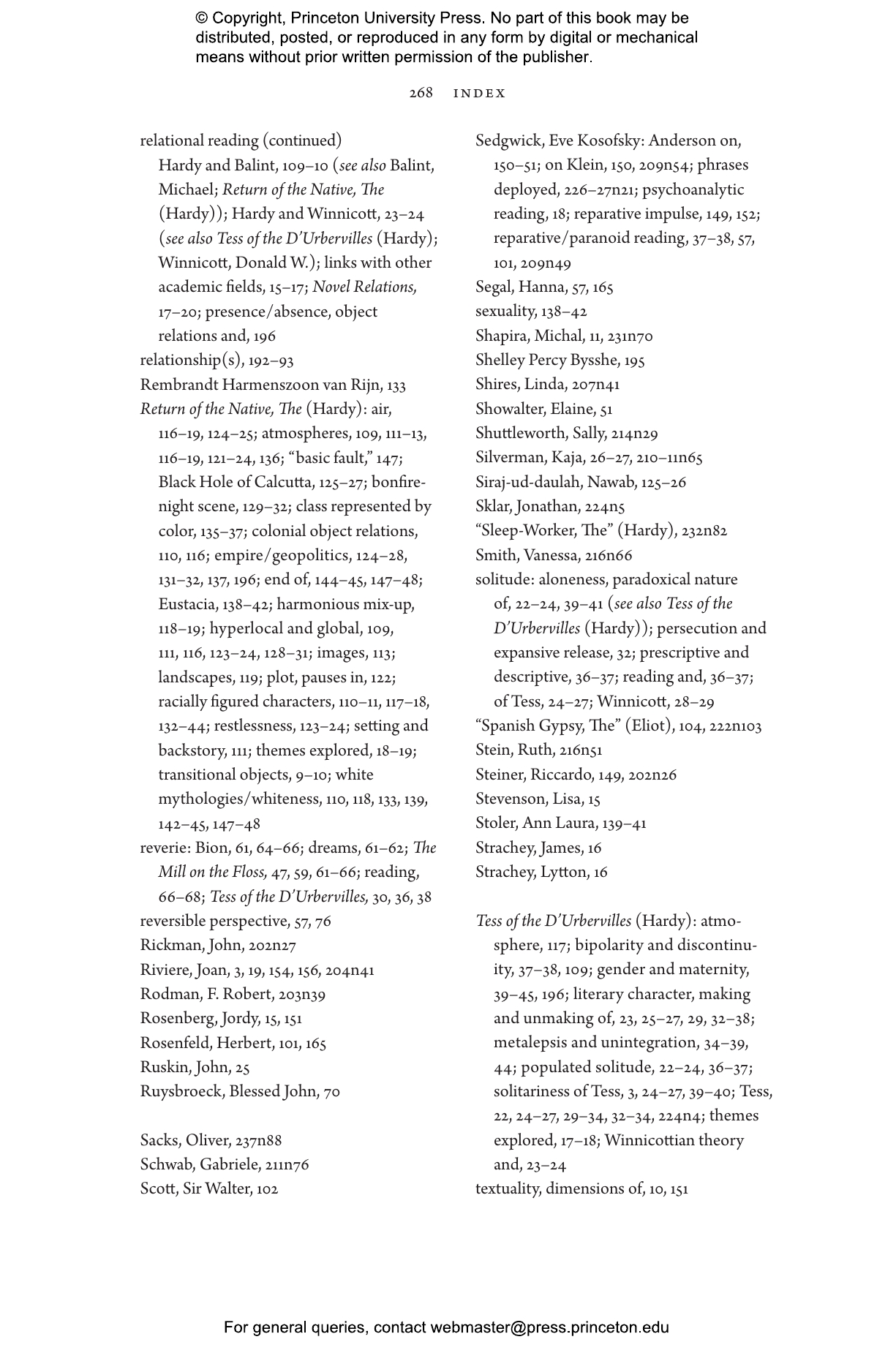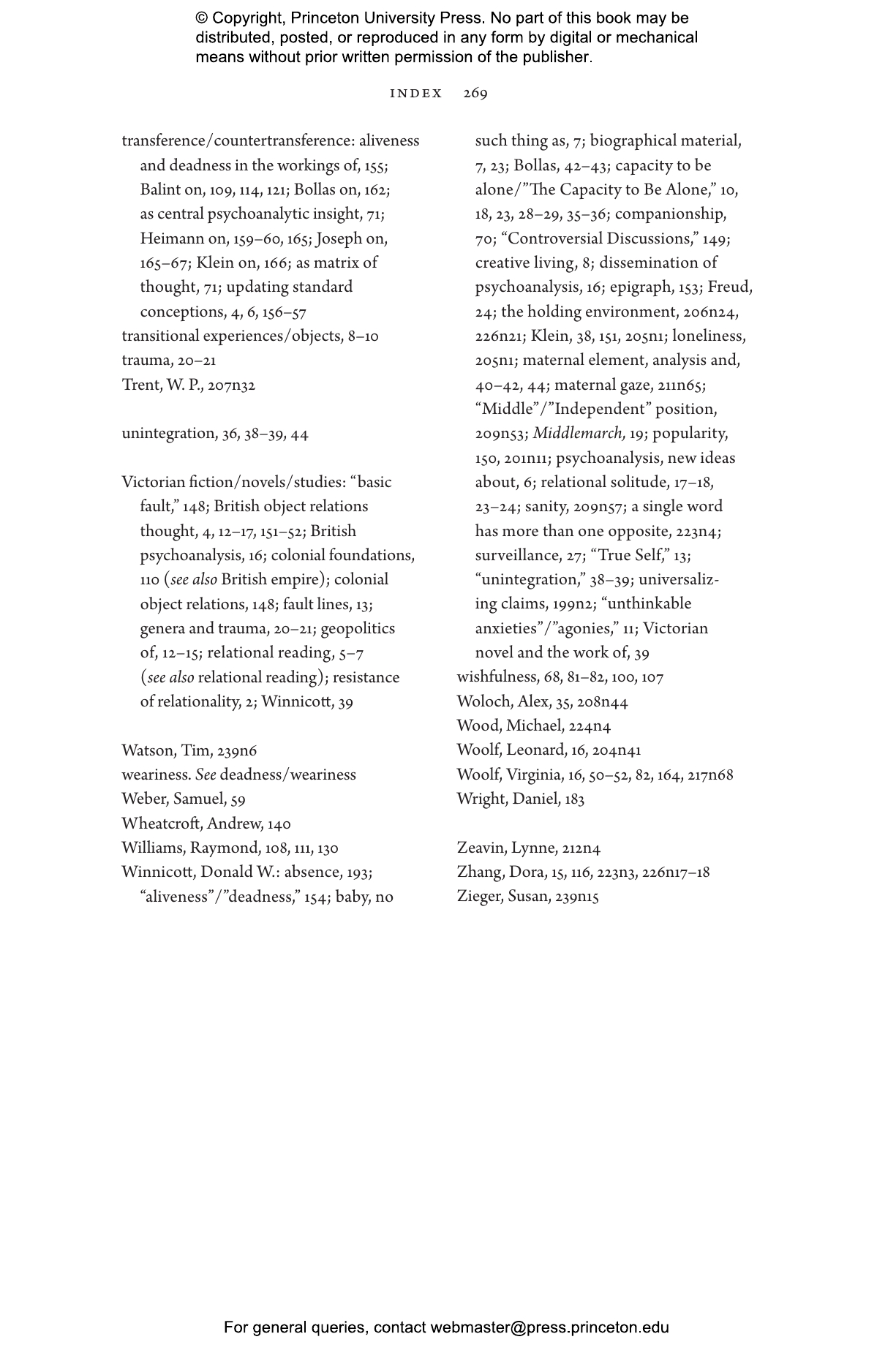Novel Relations engages twentieth-century post-Freudian British psychoanalysis in an unprecedented way: as literary theory. Placing the writing of figures like D. W. Winnicott, W. R. Bion, Michael and Enid Balint, Joan Riviere, Paula Heimann, and Betty Joseph in conversation with canonical Victorian fiction, Alicia Christoff reveals just how much object relations can teach us about how and why we read. These thinkers illustrate the ever-shifting impact our relations with others have on the psyche, and help us see how literary figures—characters, narrators, authors, and other readers—shape and structure us too. For Christoff, novels are charged relational fields.
Closely reading novels by George Eliot and Thomas Hardy, Christoff shows that traditional understandings of Victorian fiction change when we fully recognize the object relations of reading. It is not by chance that British psychoanalysis illuminates underappreciated aspects of Victorian fiction so vibrantly: Victorian novels shaped modern psychoanalytic theories of psyche and relationality—including the eclipsing of empire and race in the construction of subject. Relational reading opens up both Victorian fiction and psychoanalysis to wider political and postcolonial dimensions, while prompting a closer engagement with work in such areas as critical race theory and gender and sexuality studies.
The first book to examine at length the connections between British psychoanalysis and Victorian fiction, Novel Relations describes the impact of literary form on readers and on twentieth- and twenty-first-century theories of the subject.
Awards and Recognition
- Winner of the Sonya Rudikoff Award, Northeast Victorian Studies Association
- Winner of the Courage to Dream Book Prize, American Psychoanalytic Association
Alicia Mireles Christoff is assistant professor of English at Amherst College.
"Christoff writes beautifully and passionately, and her interpretations are fascinating."—Jane O'Grady, Times Higher Education
"A fascinating, deeply rewarding study, which helps us think afresh about how the Victorian novel alerts us to our most vital shared experiences."—Fraser Riddell, Victoriographies
"Brilliant and revelatory, Novel Relations shows us that the boundaries between text and self are less secure than we might wish them to be. I felt as if I were learning how to read the Victorian novel for the first time, and wished that I could have had this book to guide me long ago, especially in its understanding of the productively wishful, lively, and lonely experiences of readers, characters, and narrators."—Elaine Freedgood, New York University
"Novel Relations is a daring, deep, and beautiful work of literary criticism and theory. A timely book that needed to be written, it succeeds in doing what all great literary criticism aspires to do: make books that are familiar seem stranger than we realized. A great reader of Victorian novels and of psychoanalytic writers, Alicia Christoff illuminates both in writing about them together. Her book will make a splash."—Adela Pinch, University of Michigan
"Reading Victorian novels alongside British object relations psychology, this gorgeously written book offers a distinctive rethinking of the self in Victorian literature. Alicia Christoff's compelling resistance to periodization facilitates searching and persuasive readings that transform how we approach canonical novels."—Elisha Cohn, Cornell University
"A book of singular intensity, Novel Relations feels at certain points as if it was aglow. Alicia Christoff does more than just read British object relations psychoanalysis together with novels by George Eliot and Thomas Hardy. In her pathbreaking study, a less familiar psychoanalytic idiom and four canonical Victorian novels ignite and illuminate one another."—Carolyn Betensky, University of Rhode Island
"In Alicia Christoff, the Victorian novel has at last found the therapist of its dreams. The British object relations tradition supplies the key that unlocks miraculous literary formations, even as the novel helps to unravel the enigmas of psychoanalysis. Novel Relations elegantly orchestrates a series of conversations between theory and fiction, revealing the buried history of racial, colonial, and gendered relations from which the Victorian novel and psychoanalysis derive their power."—William A. Cohen, University of Maryland
